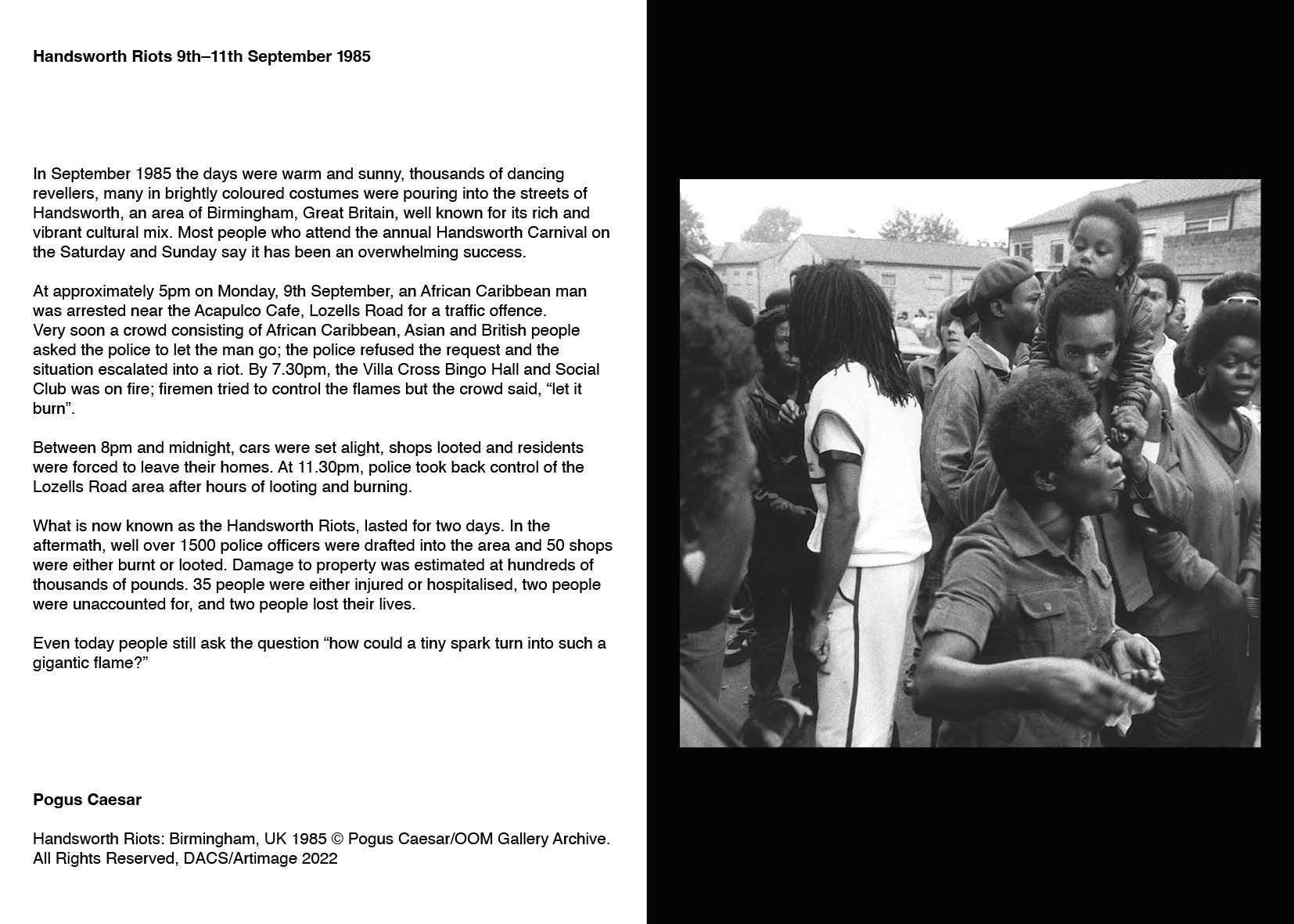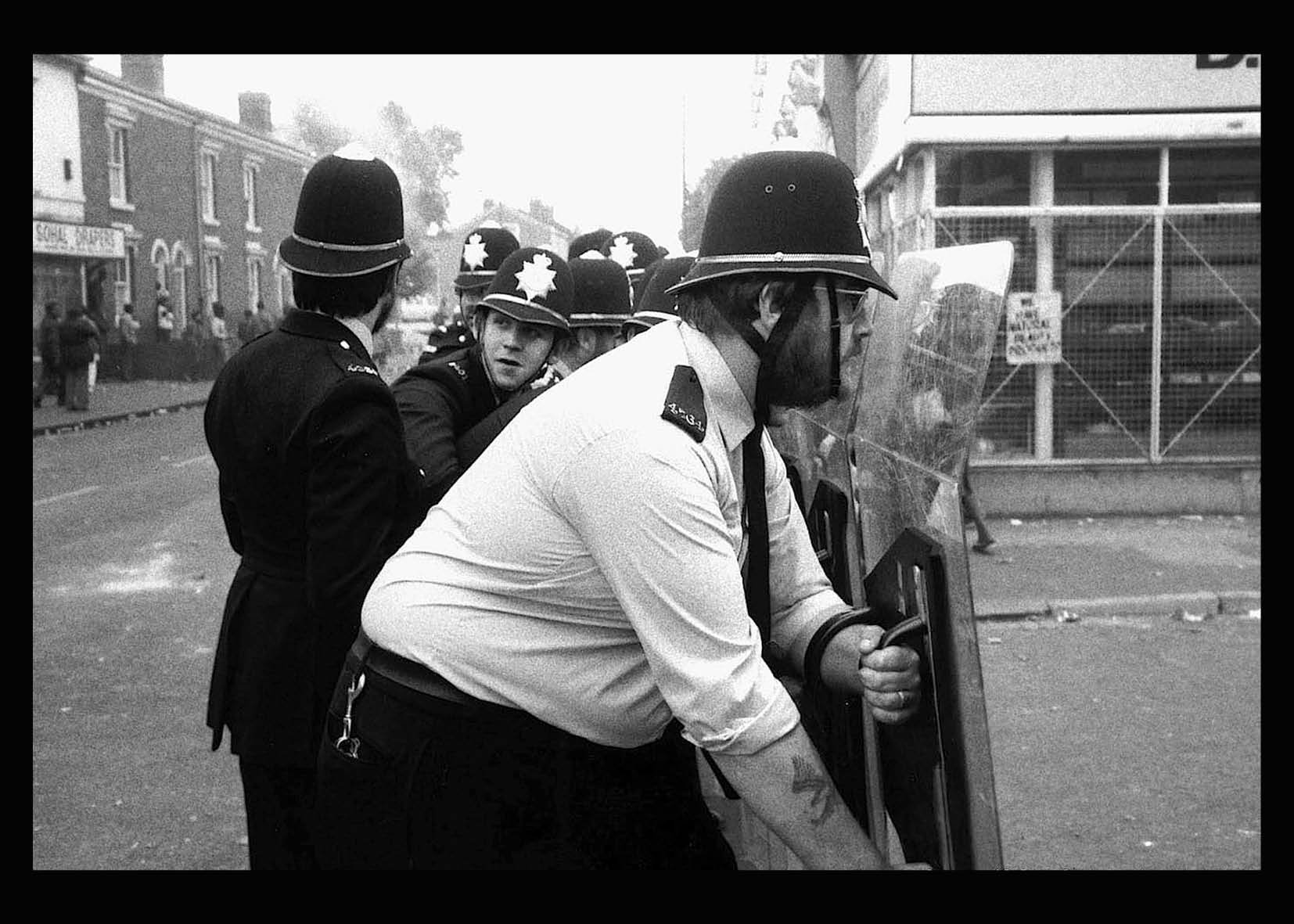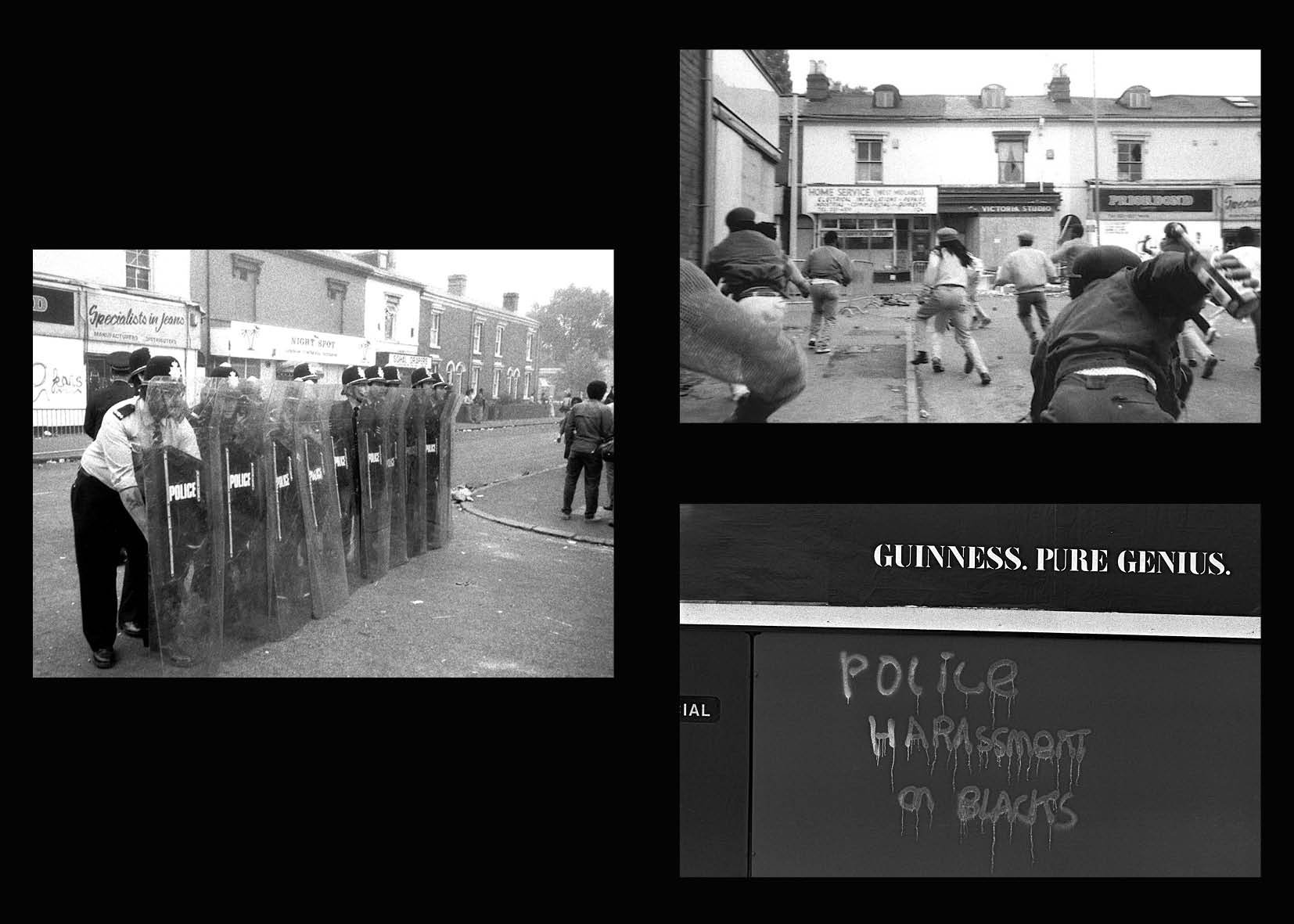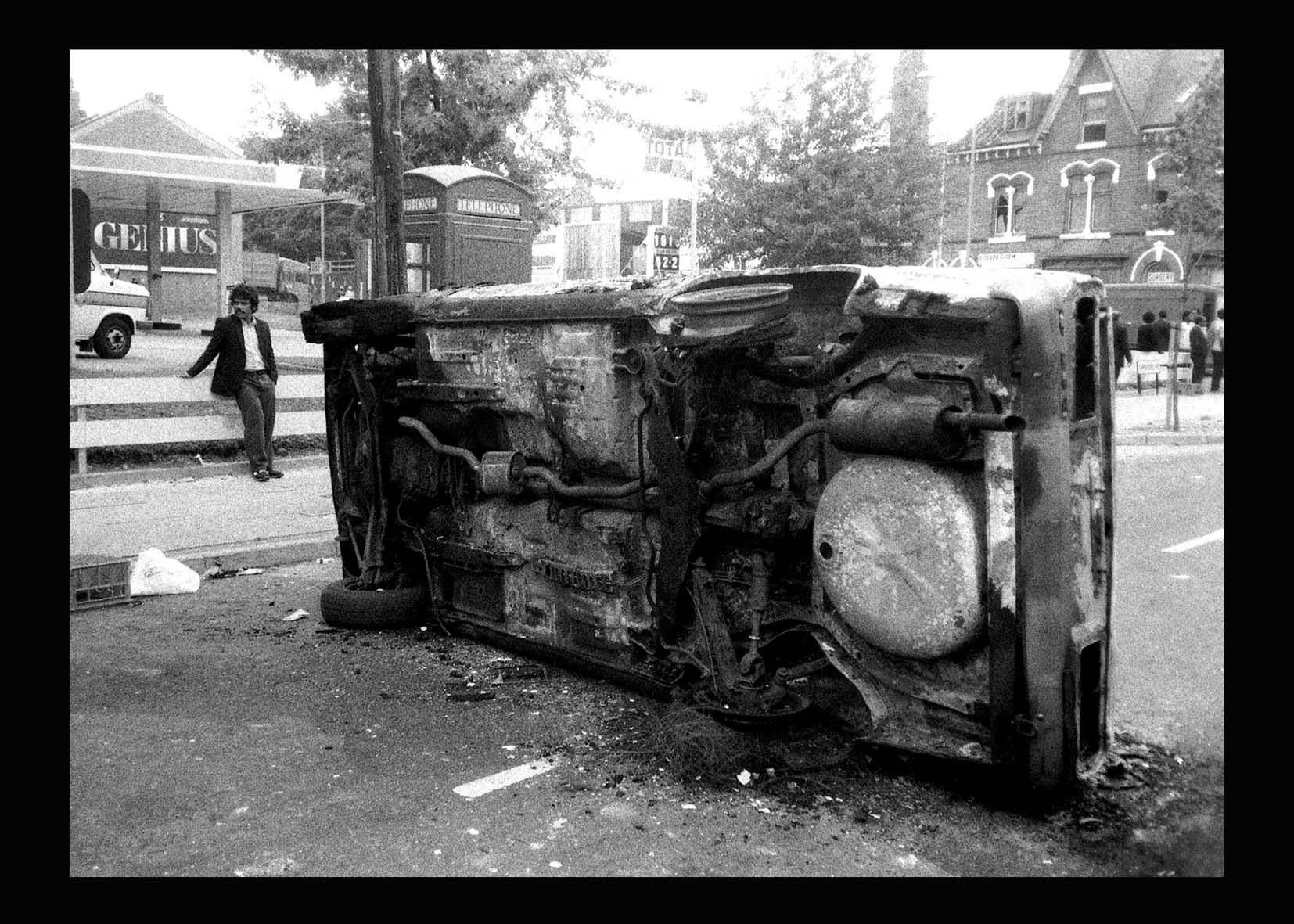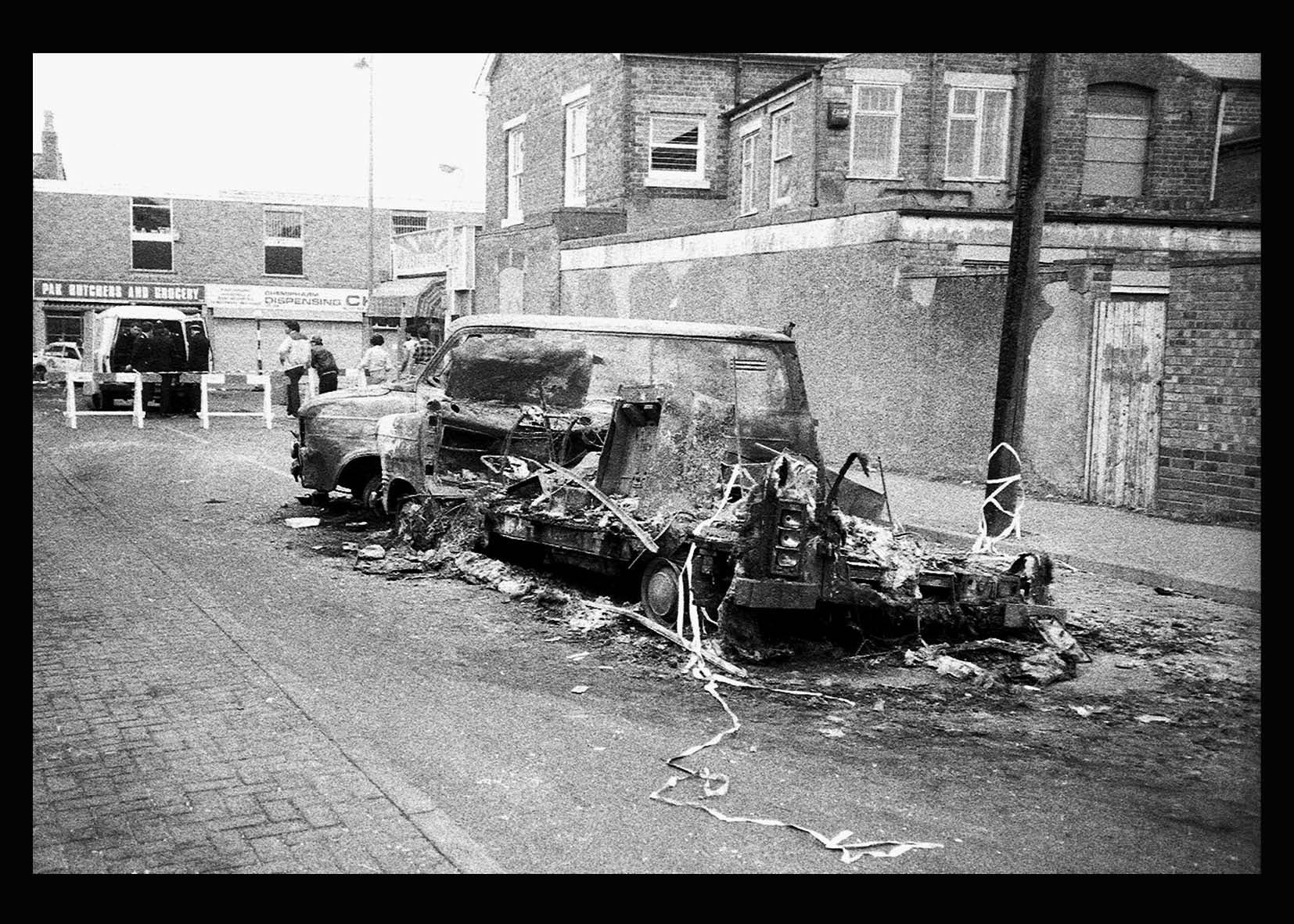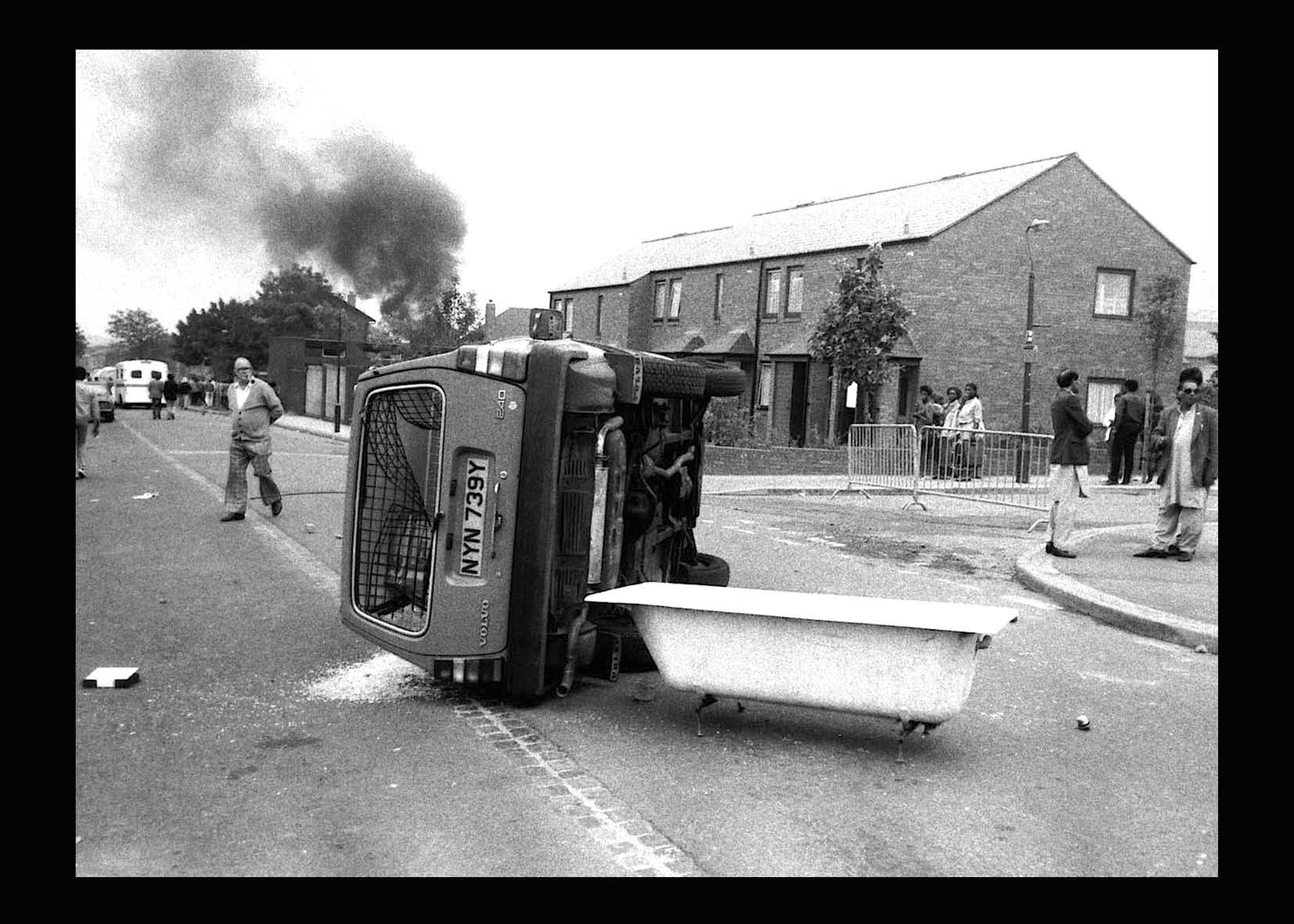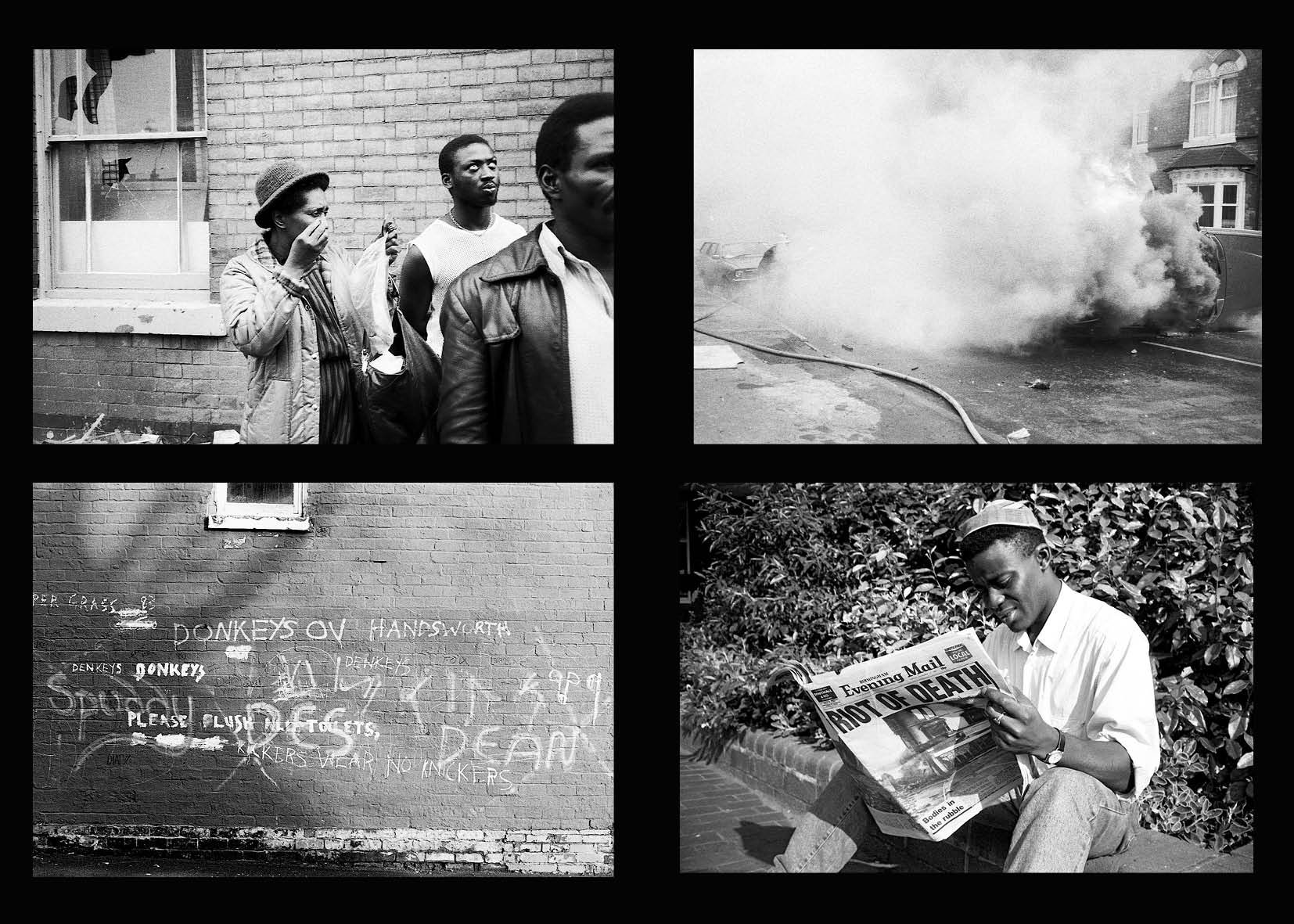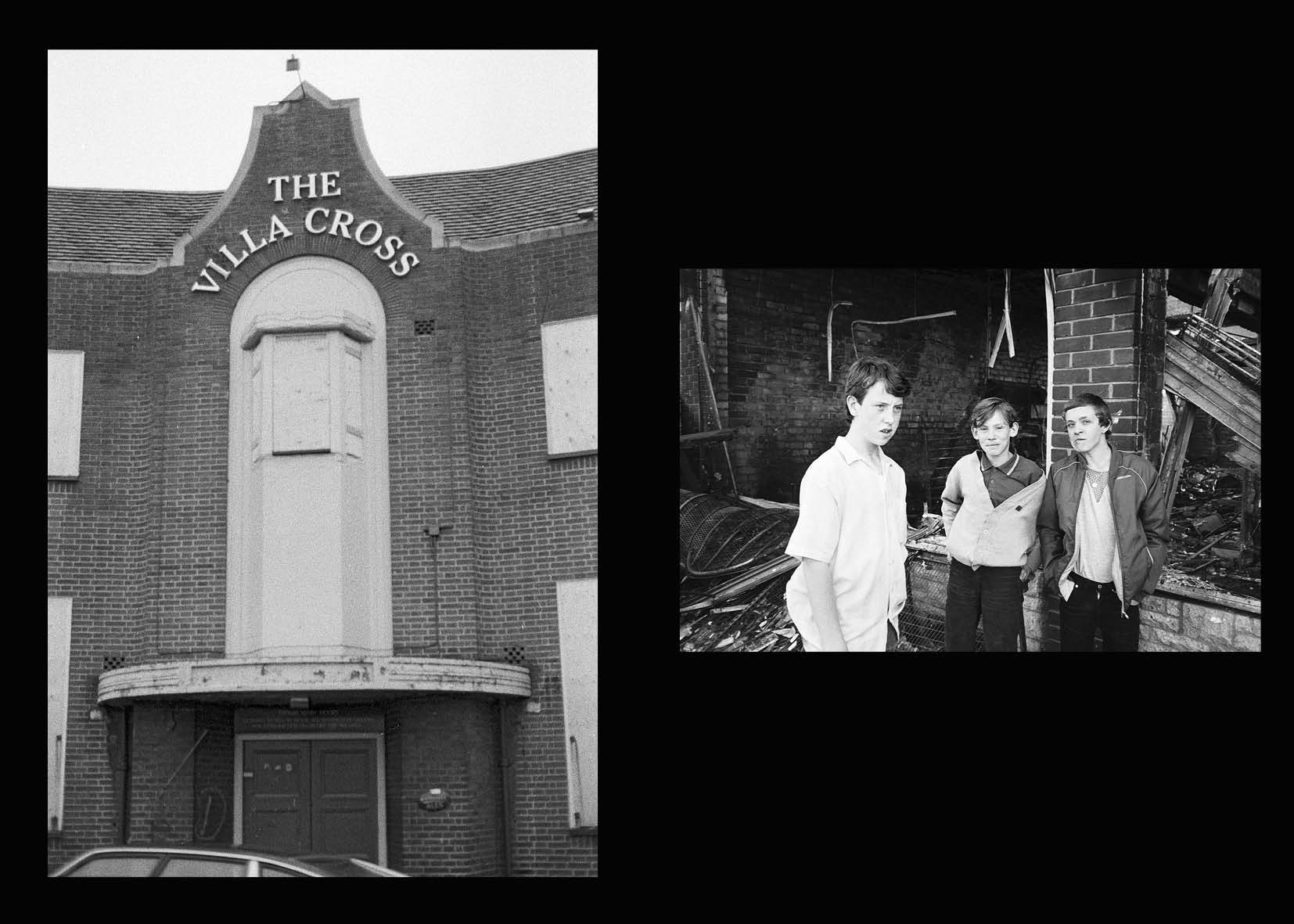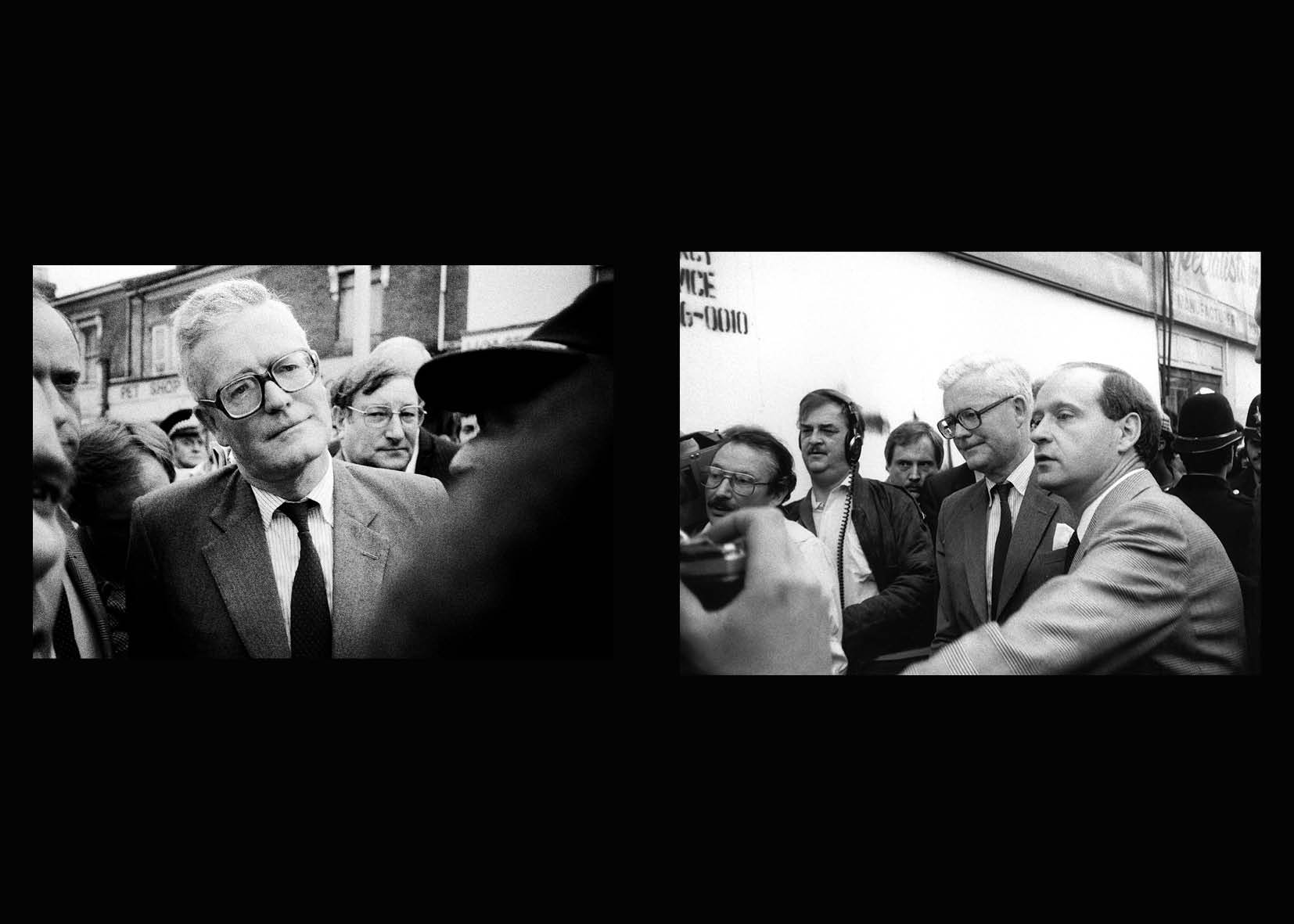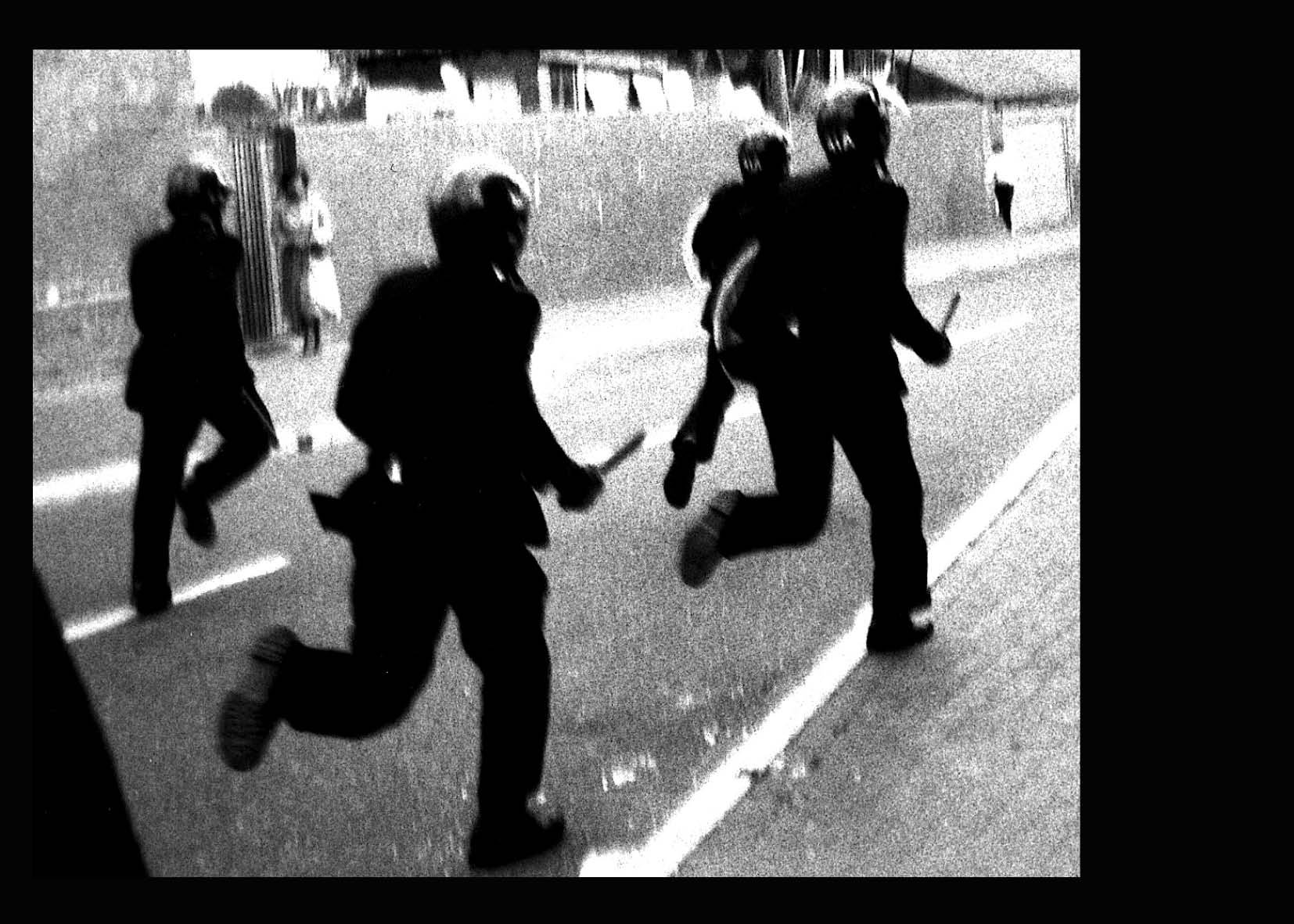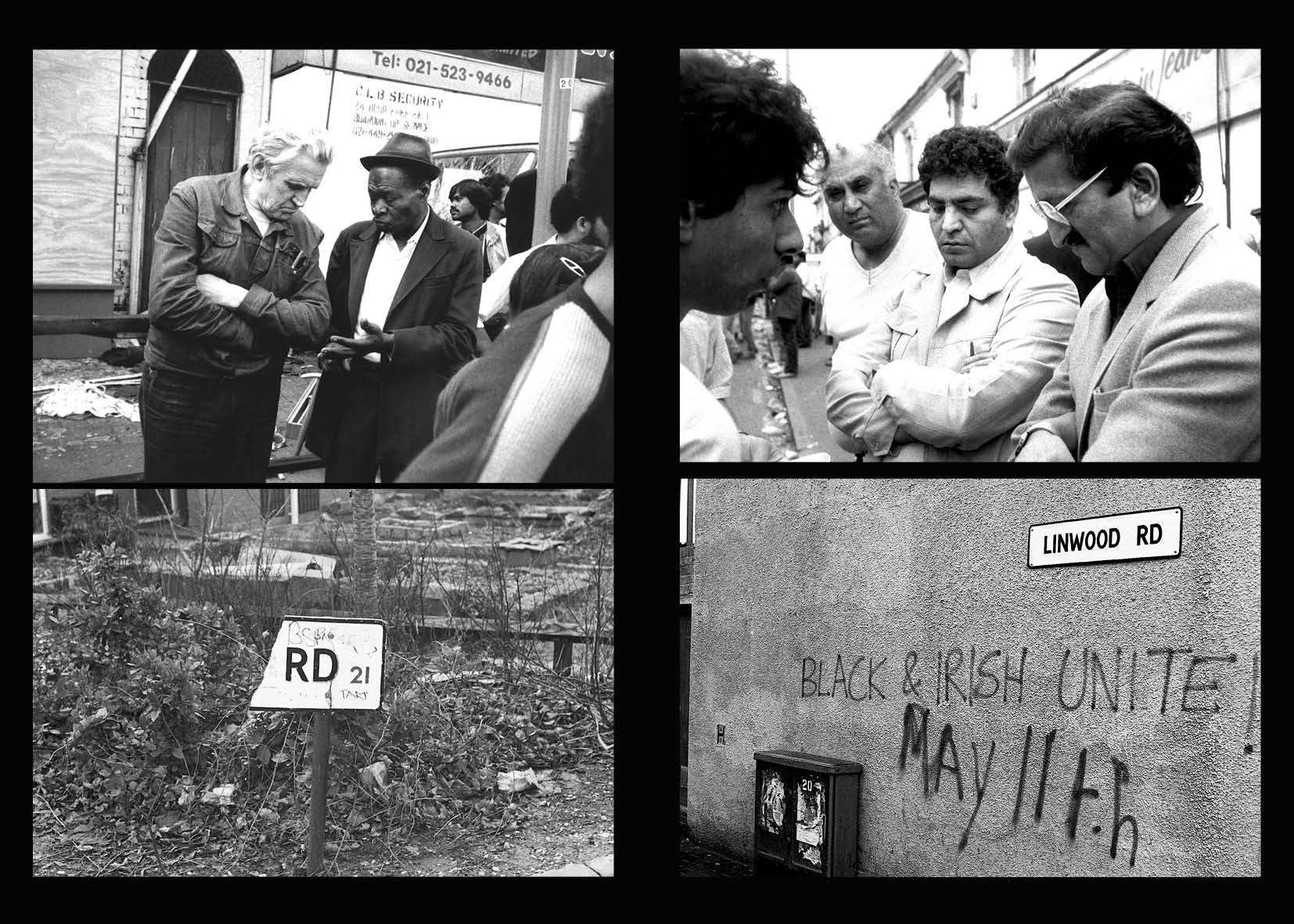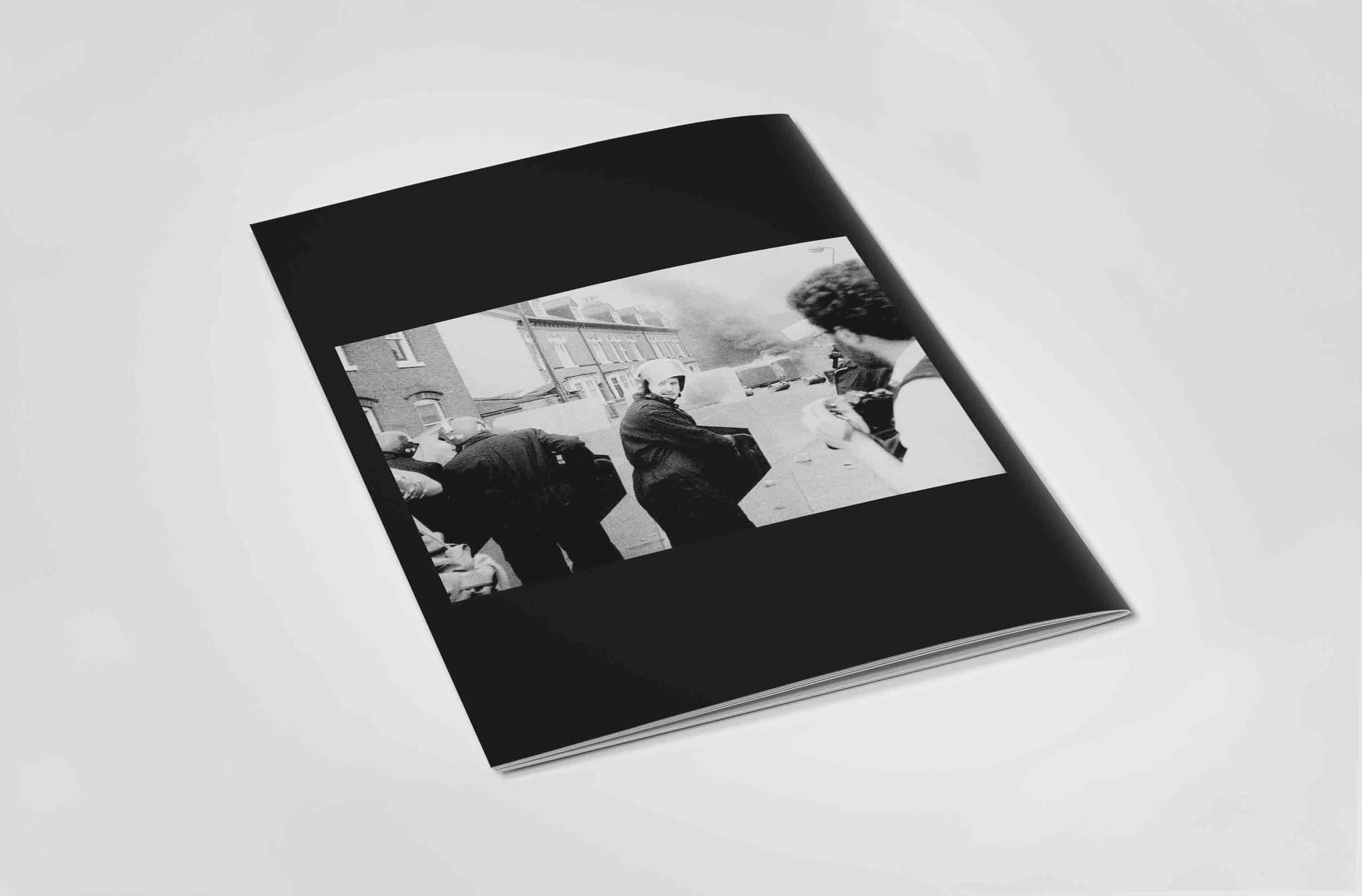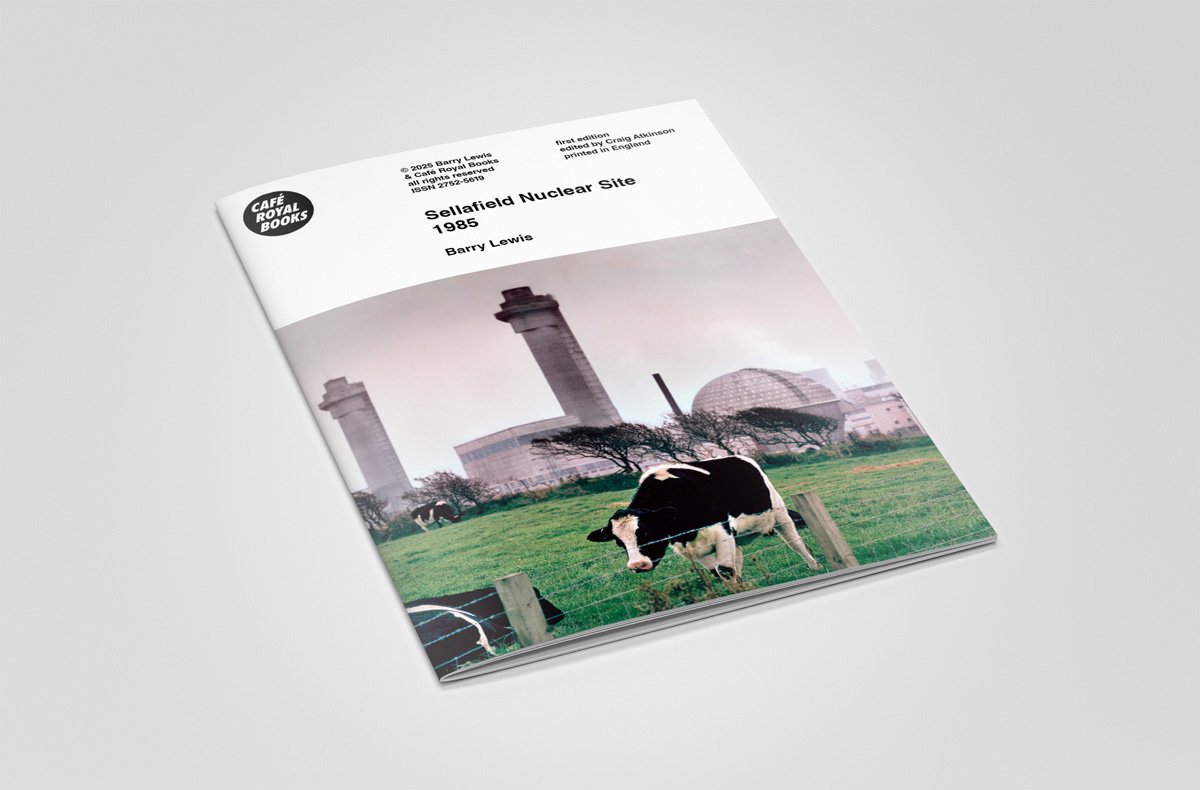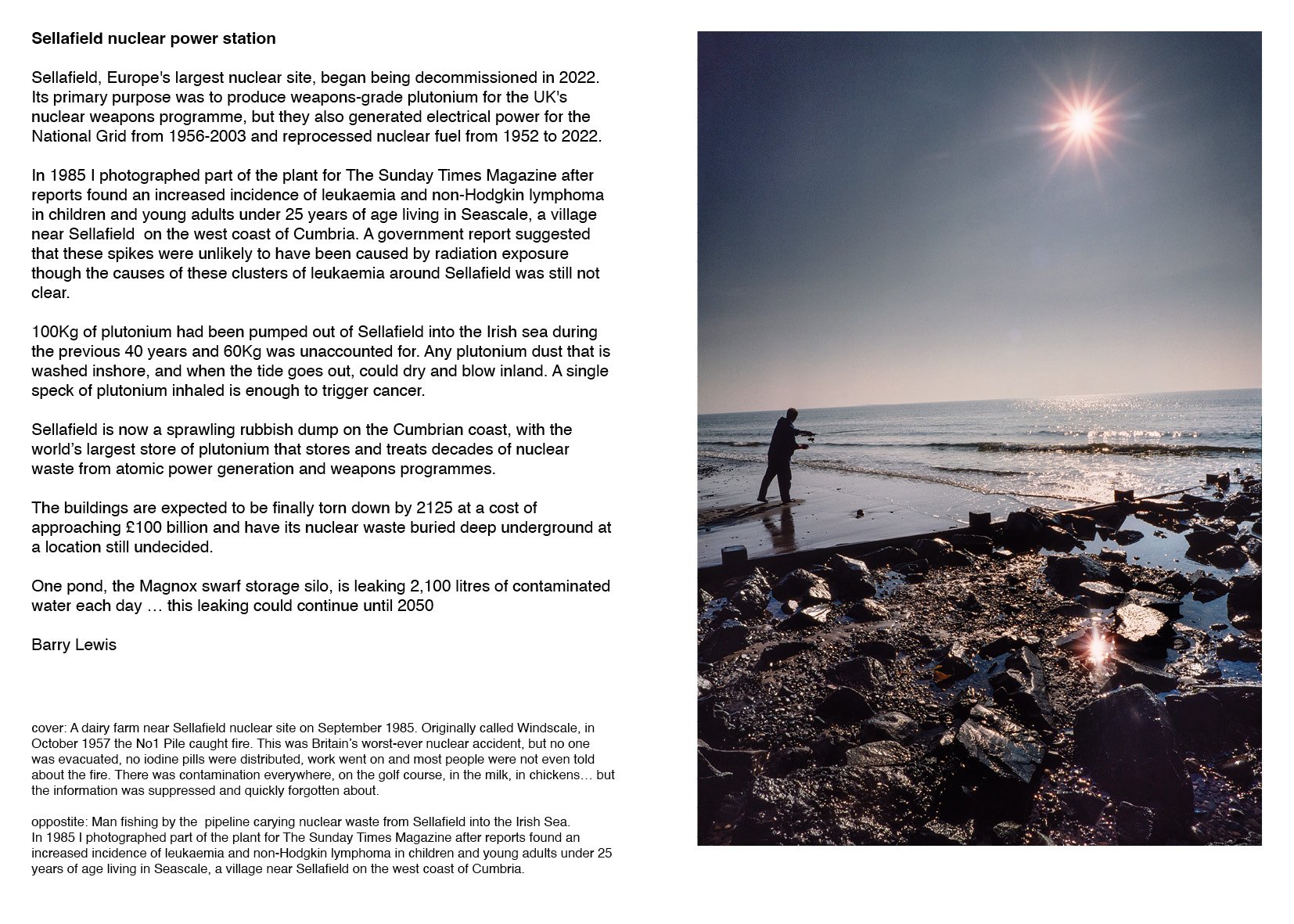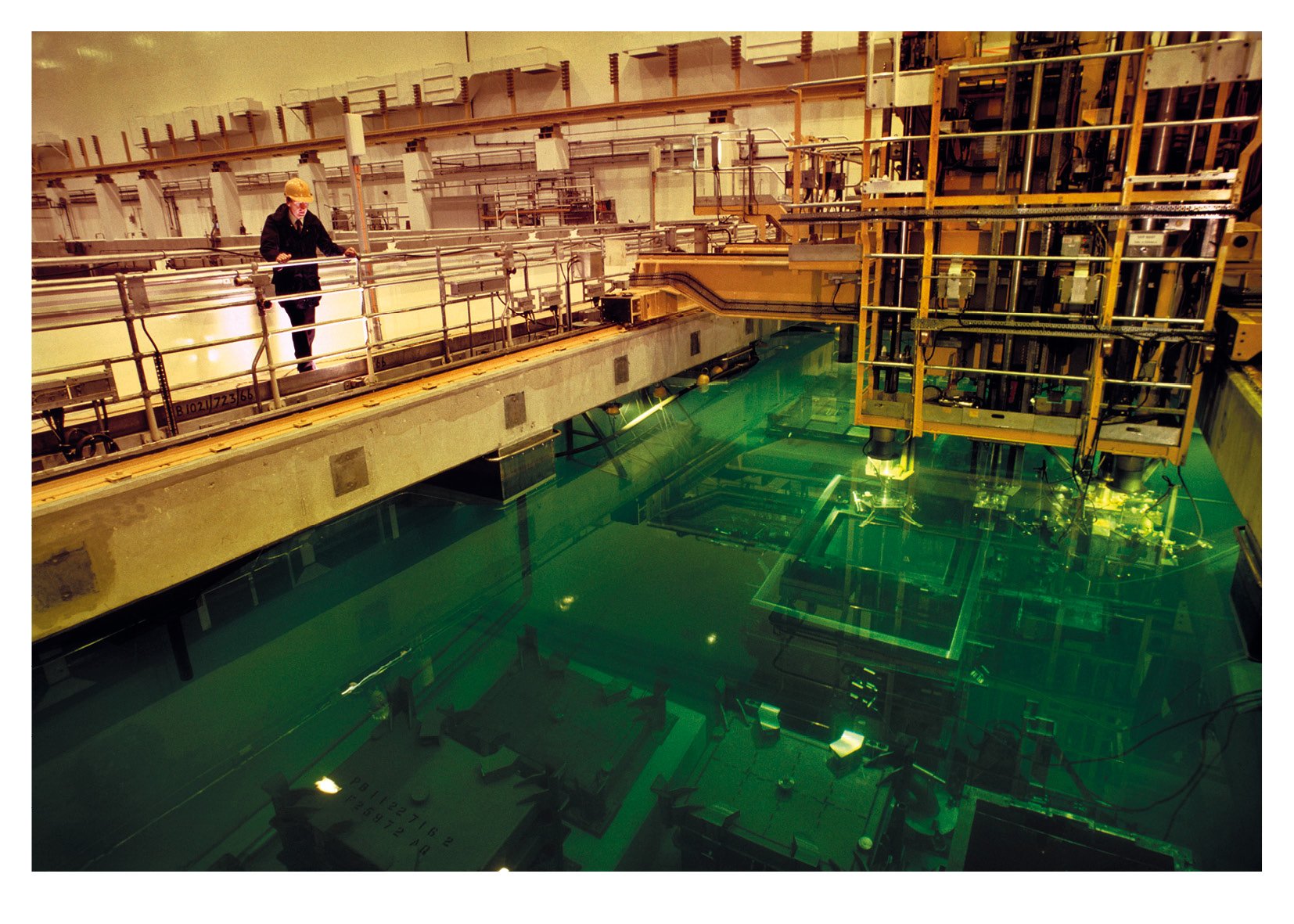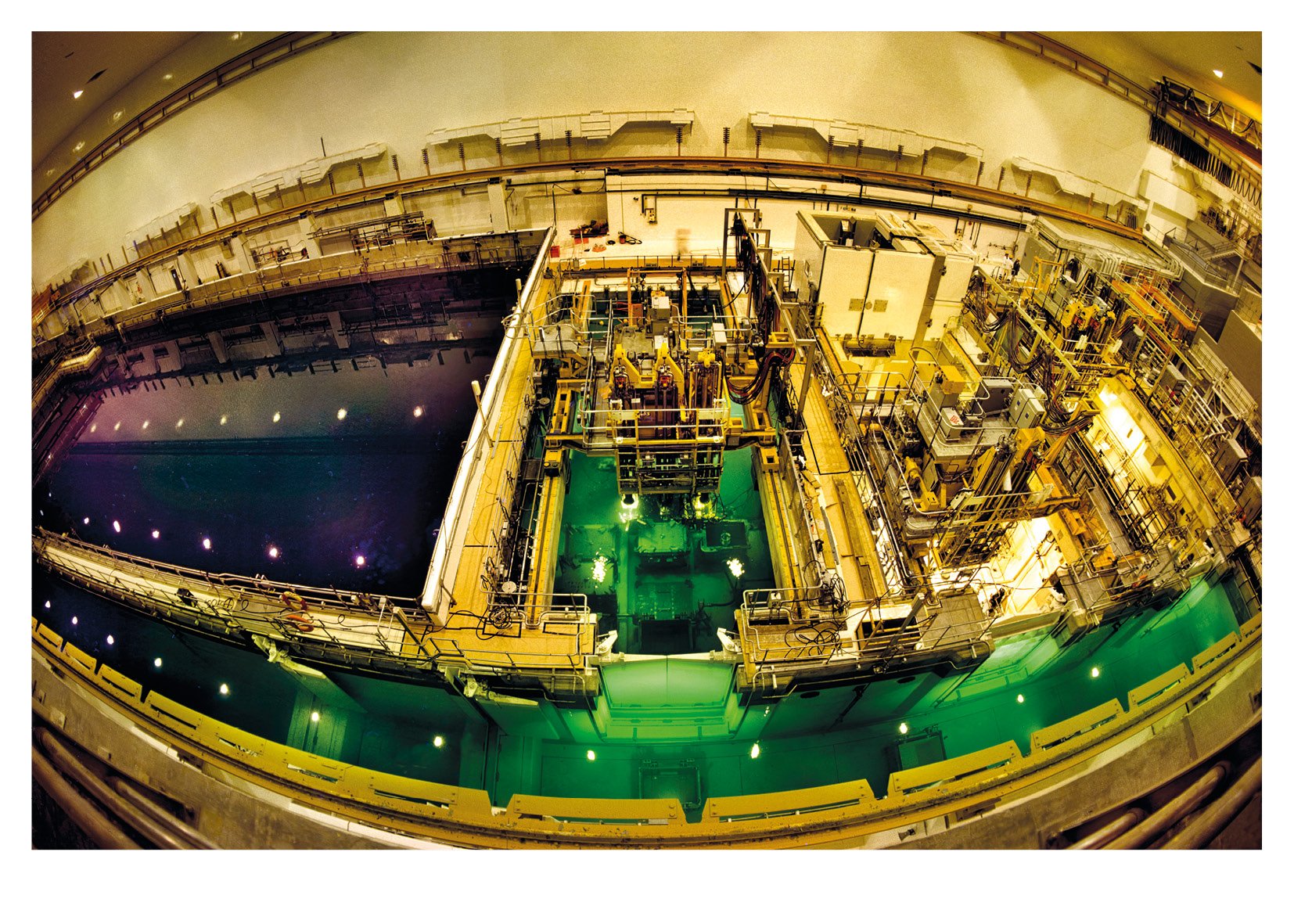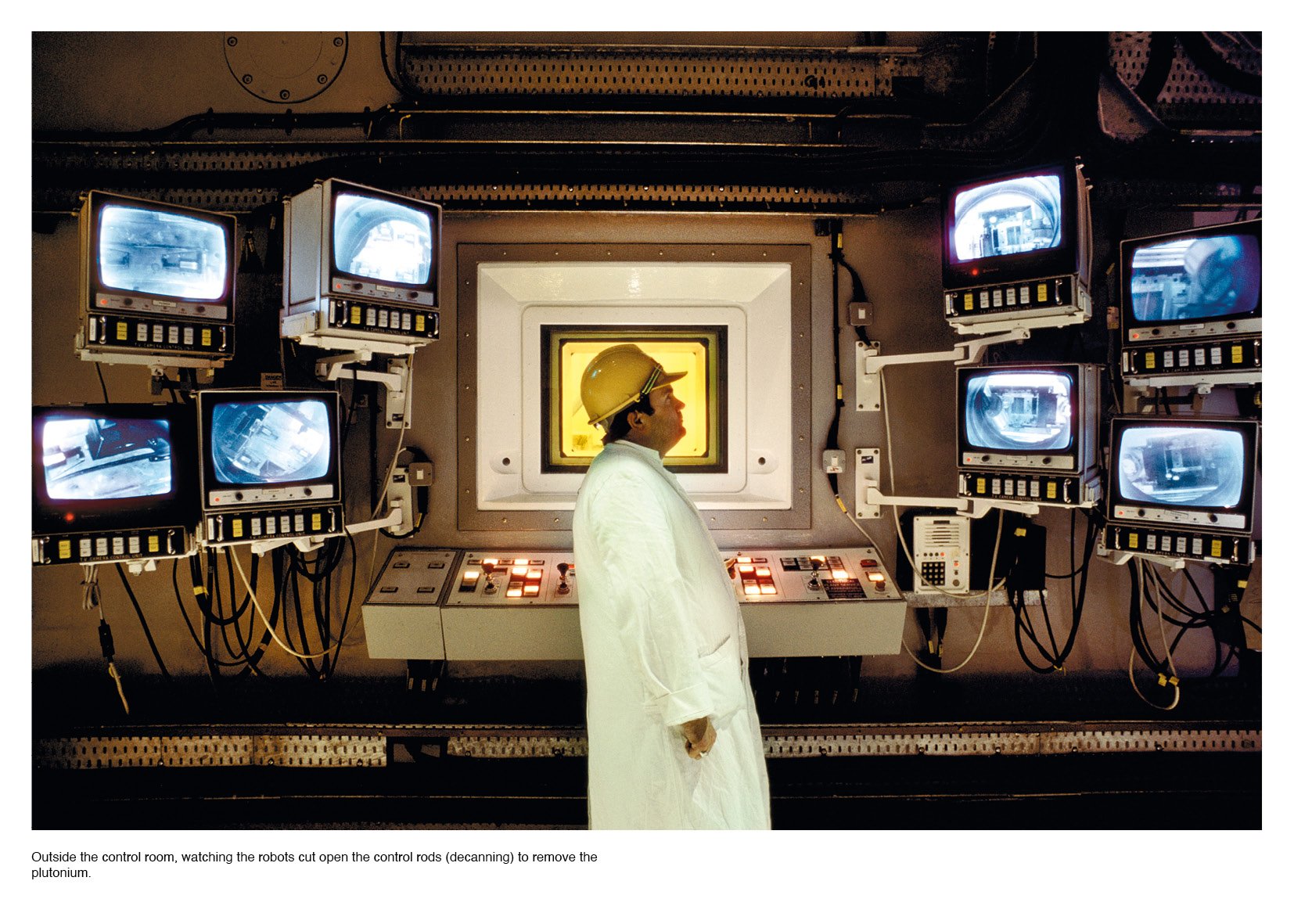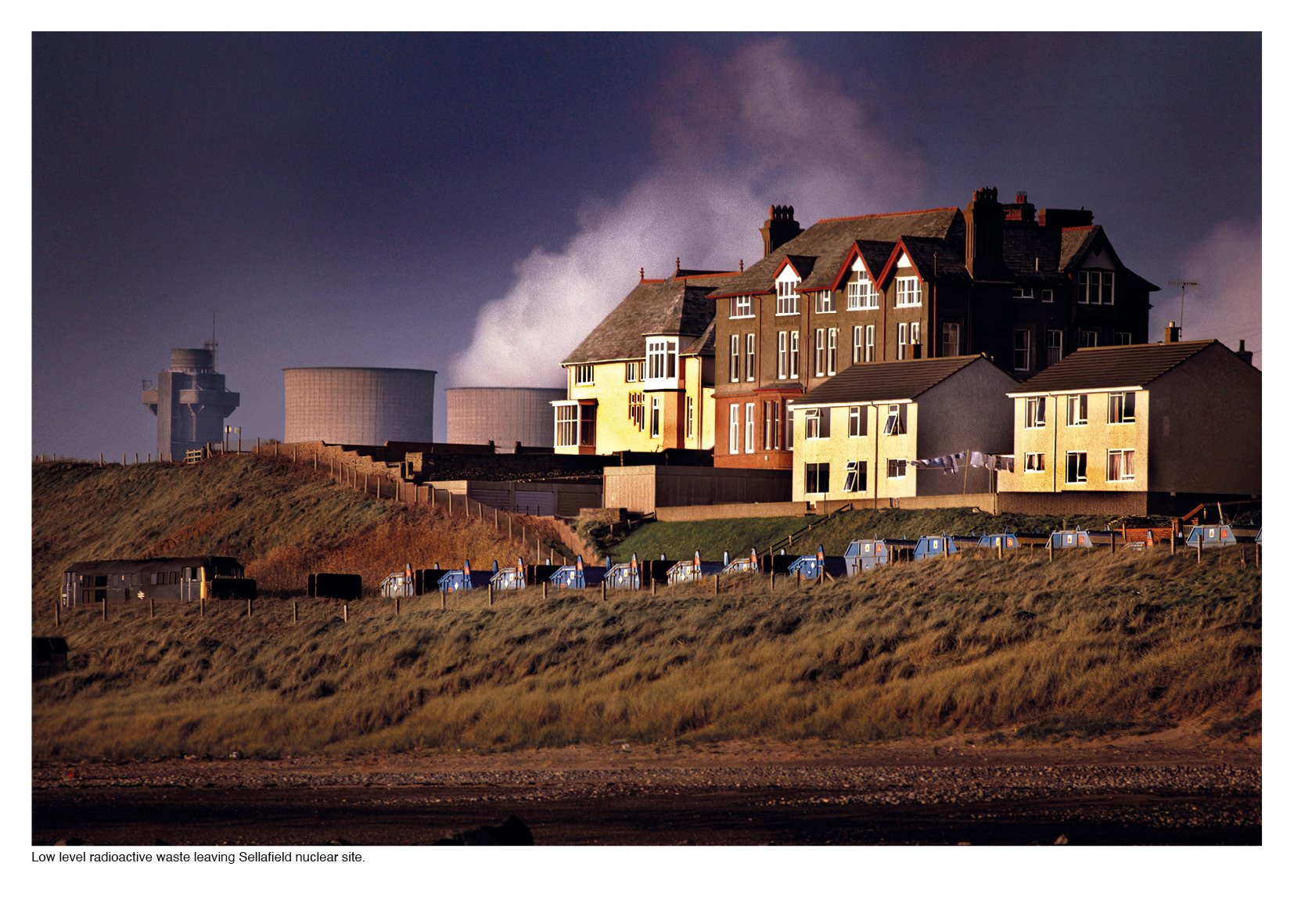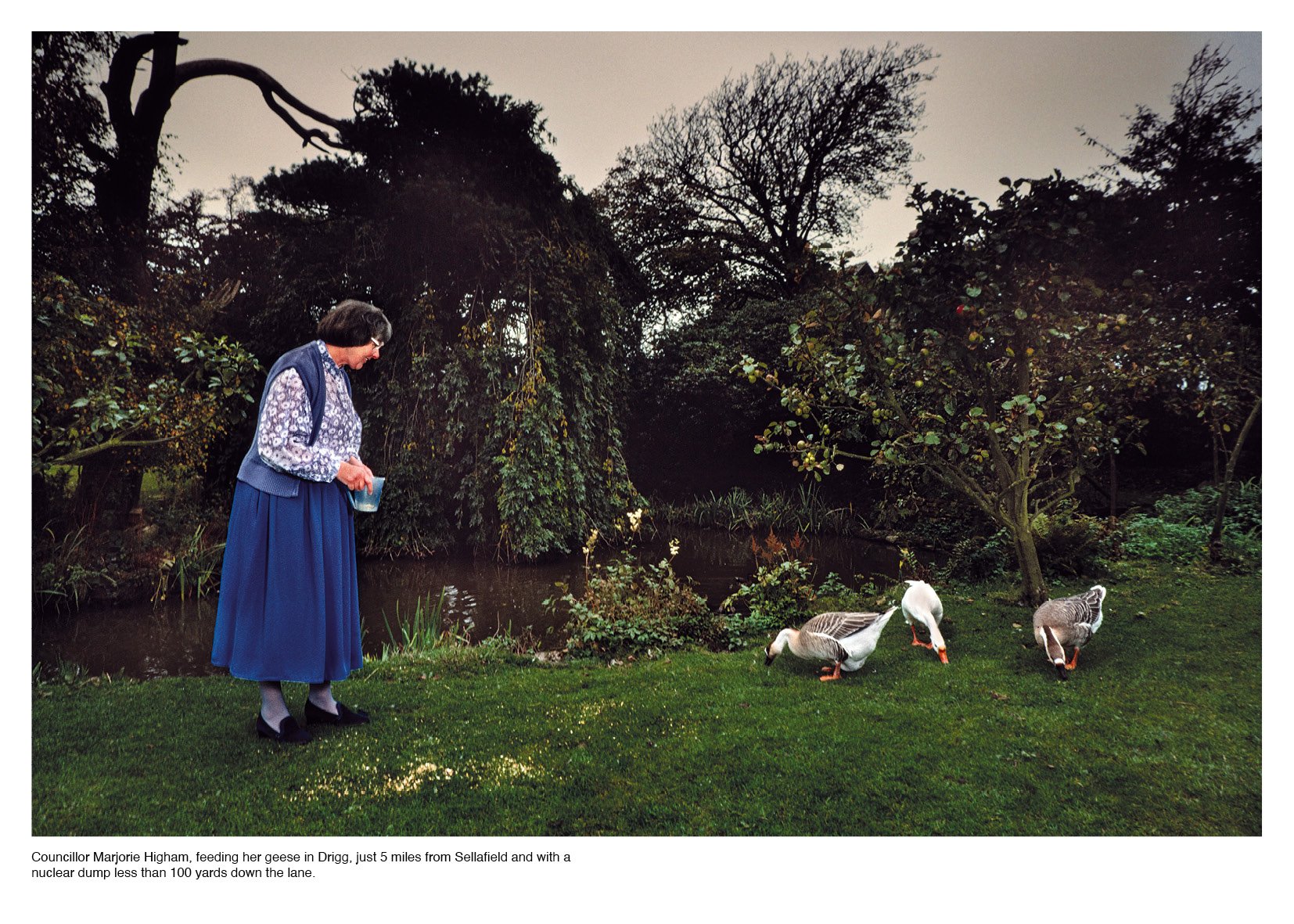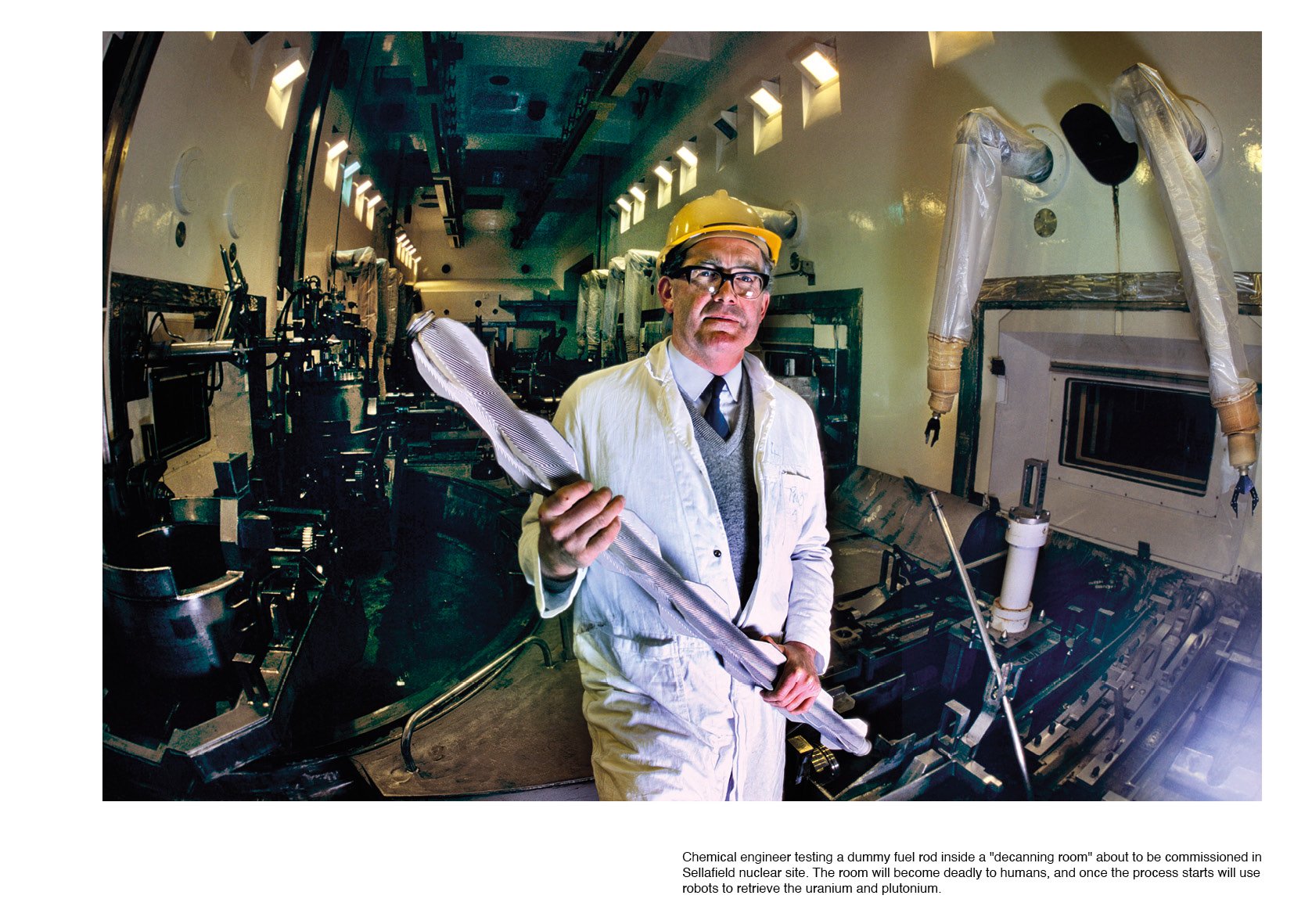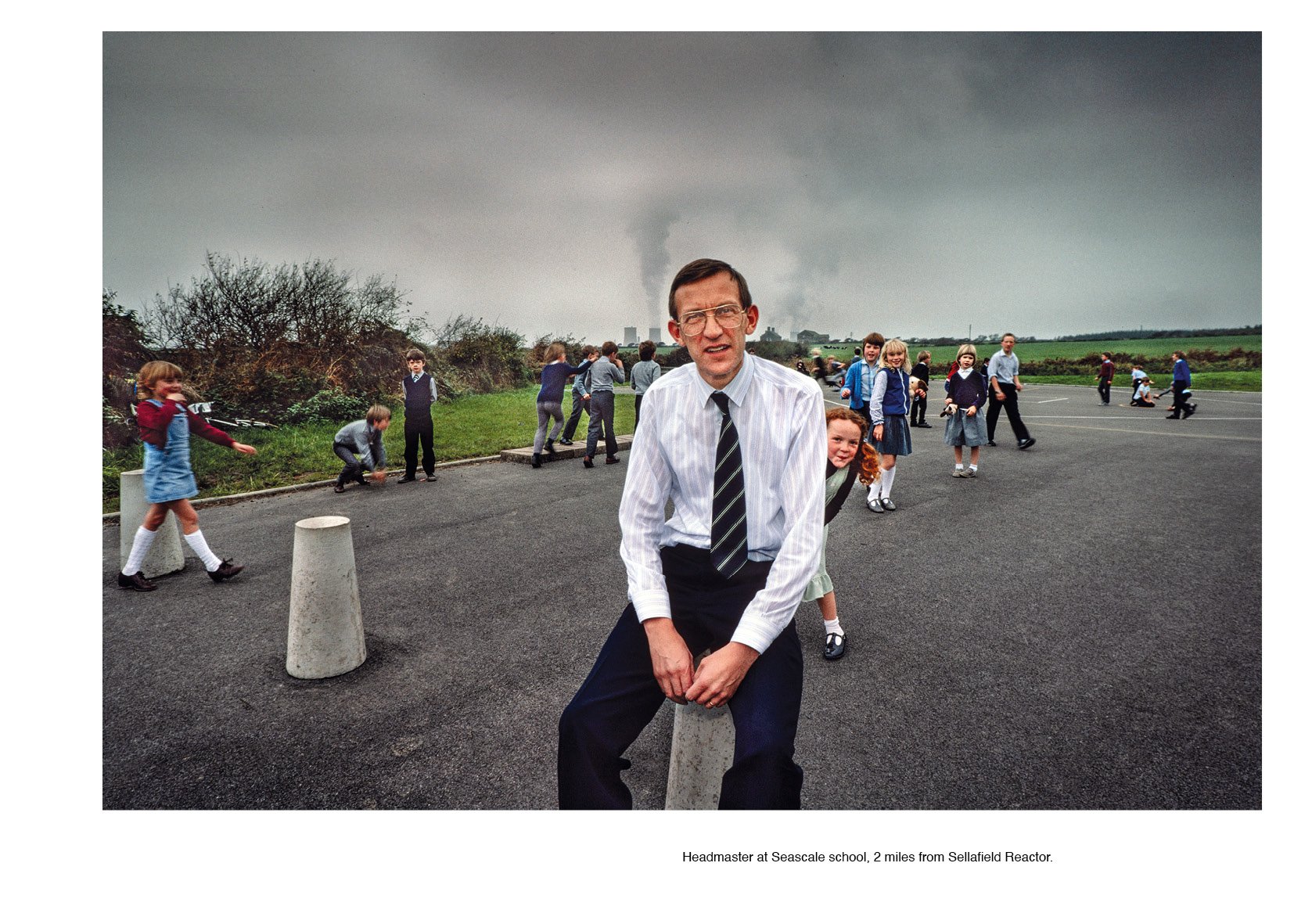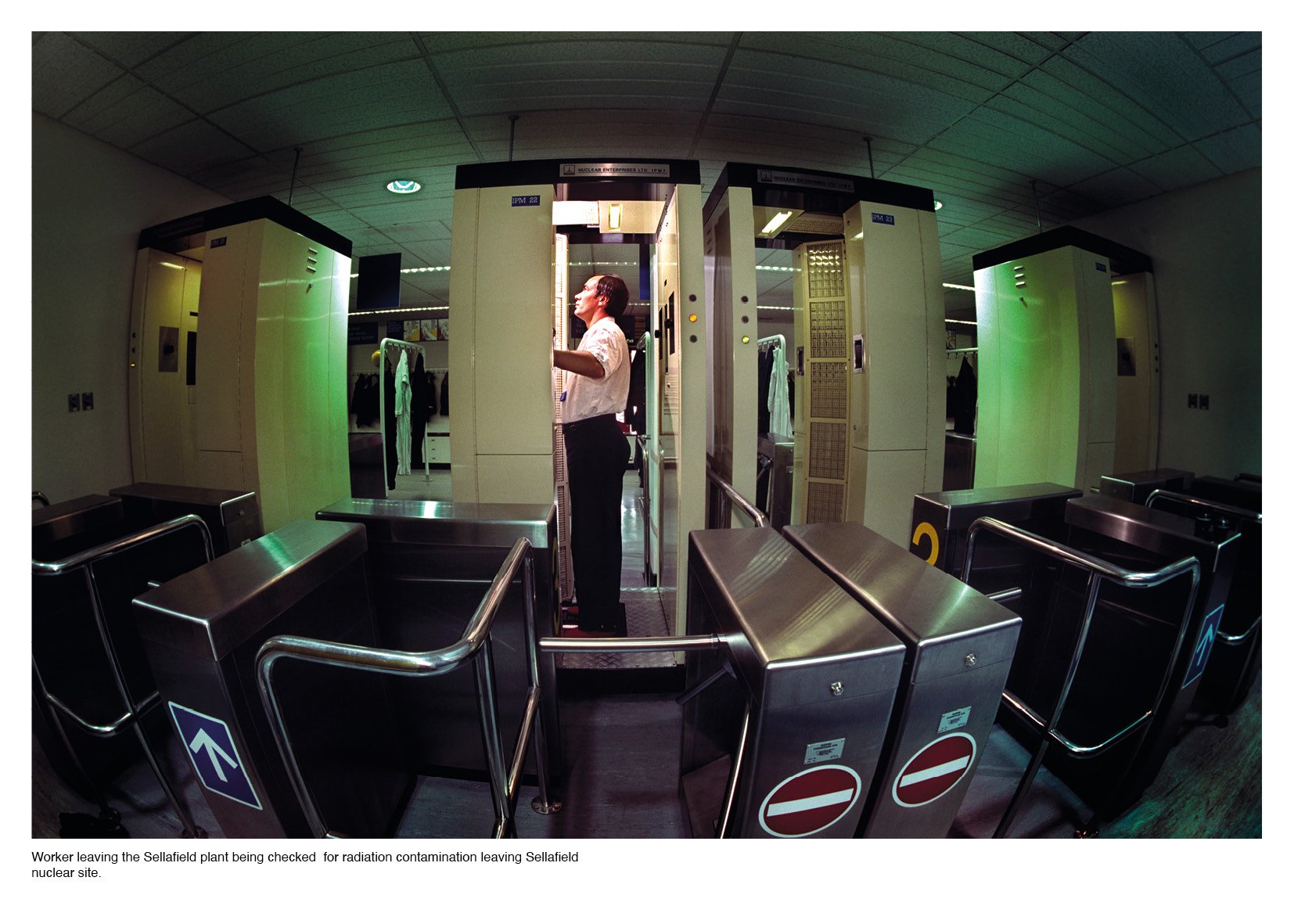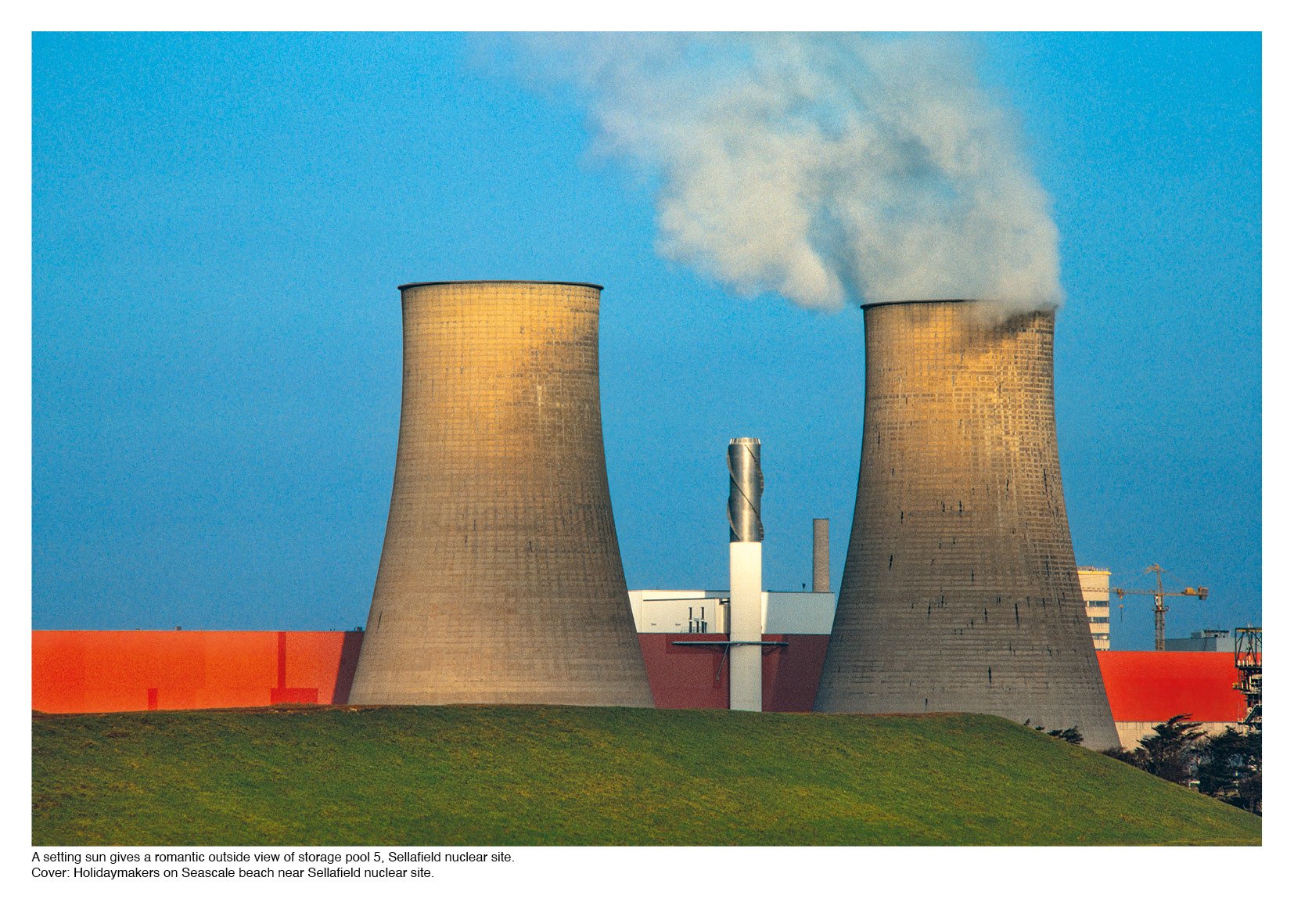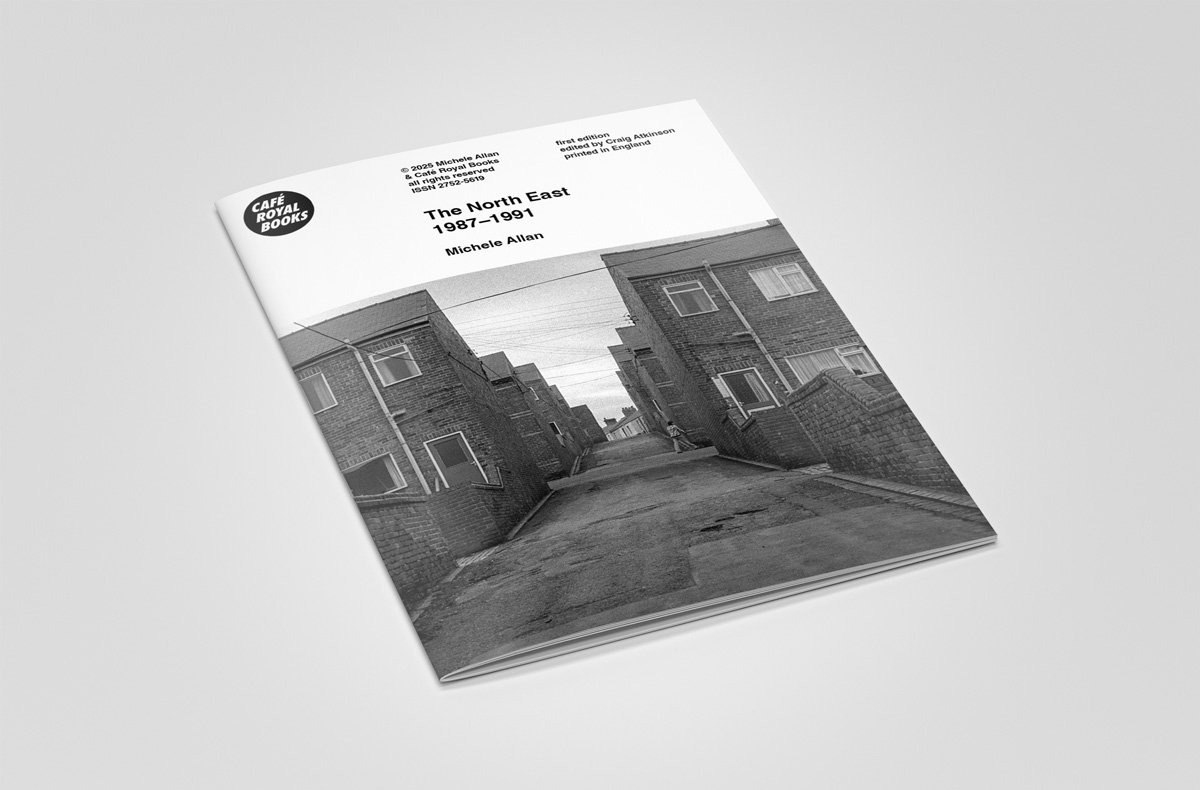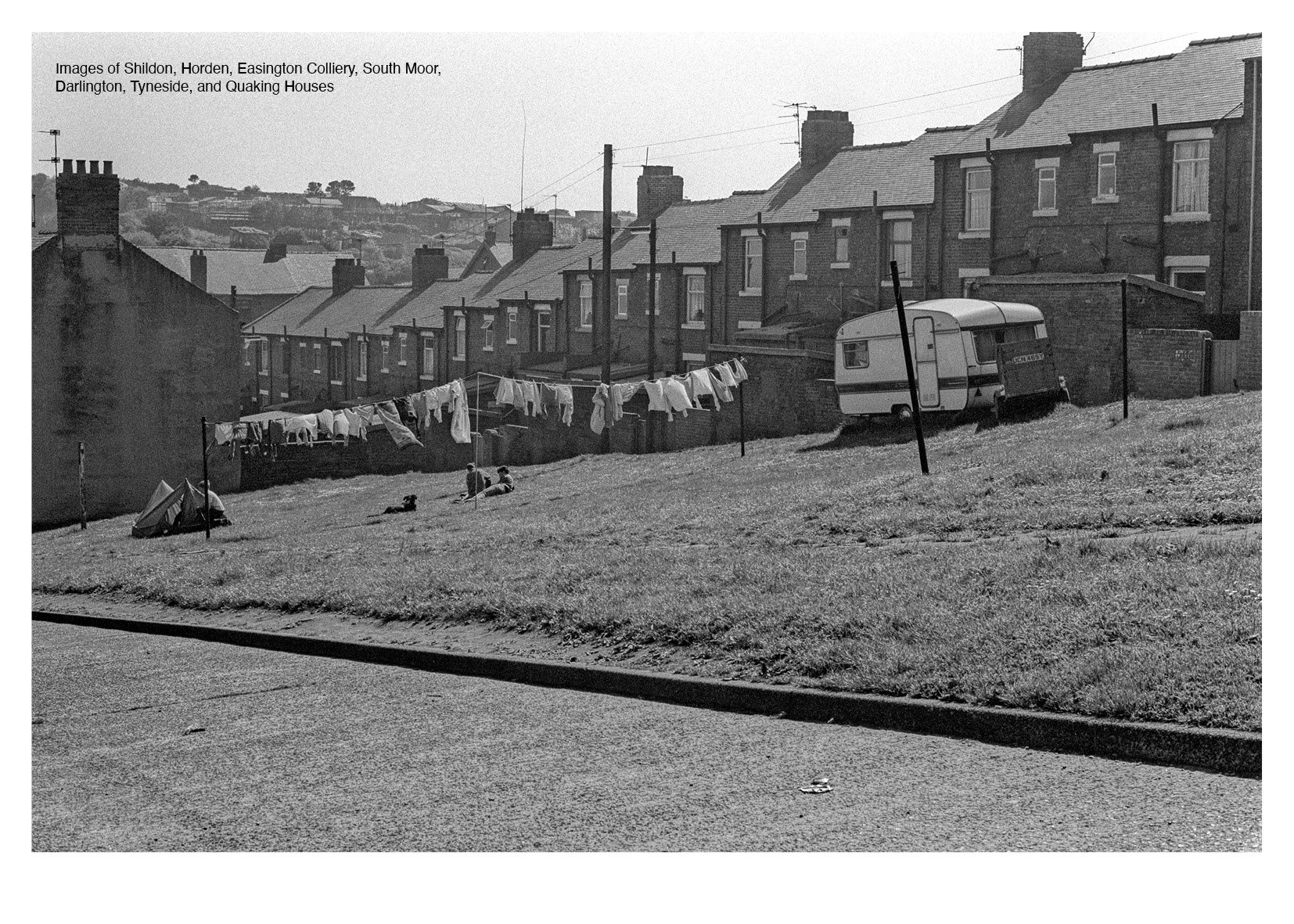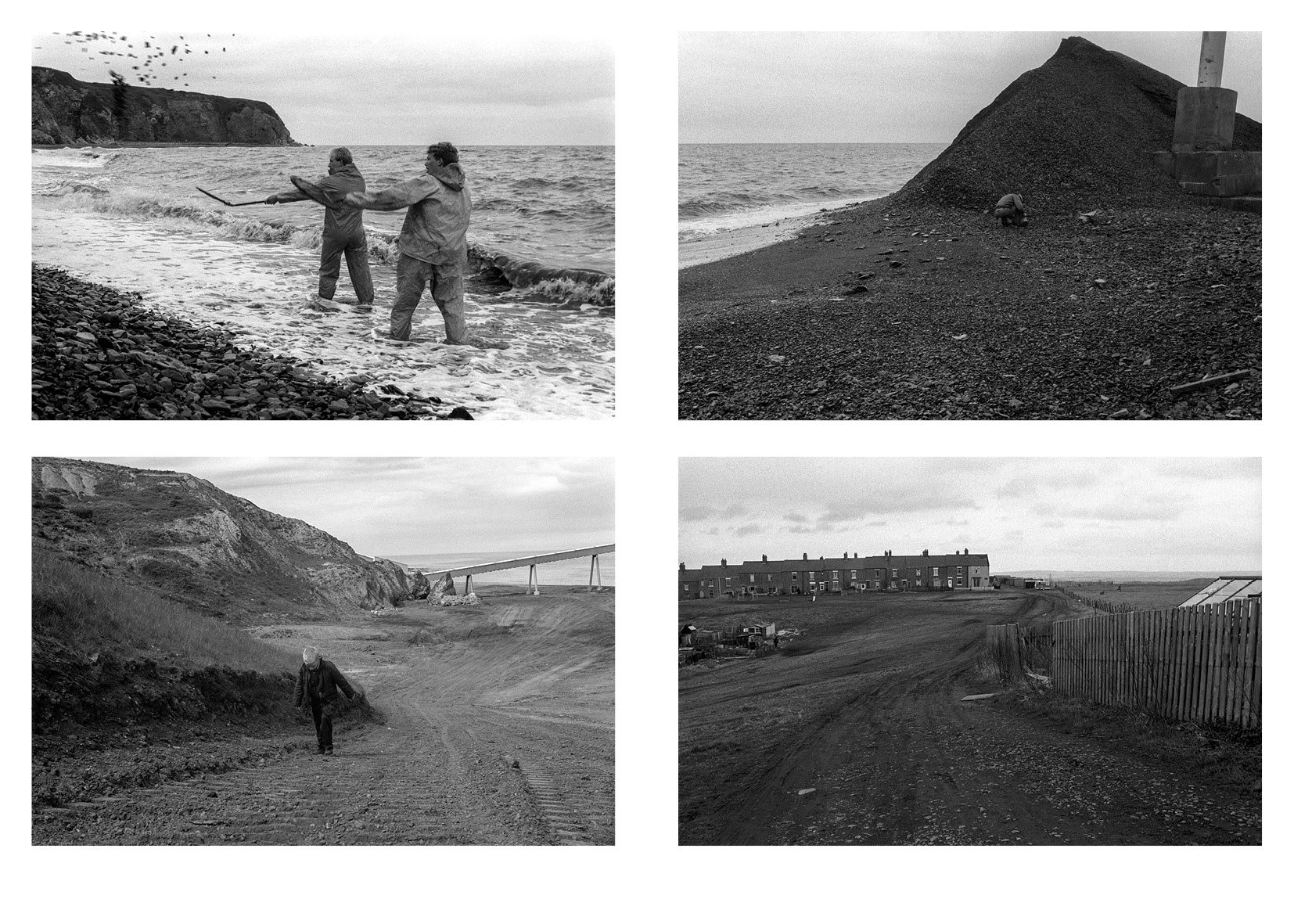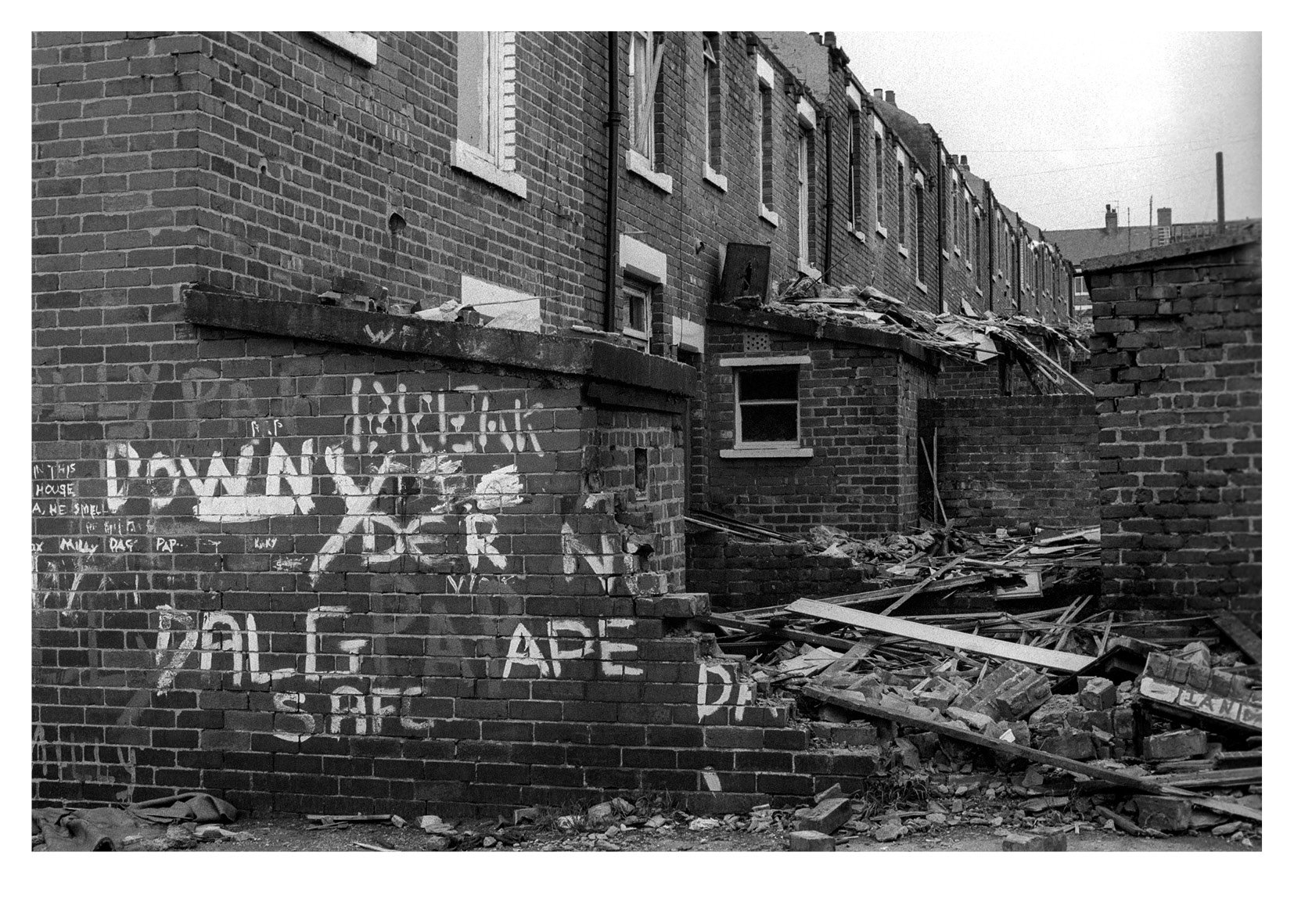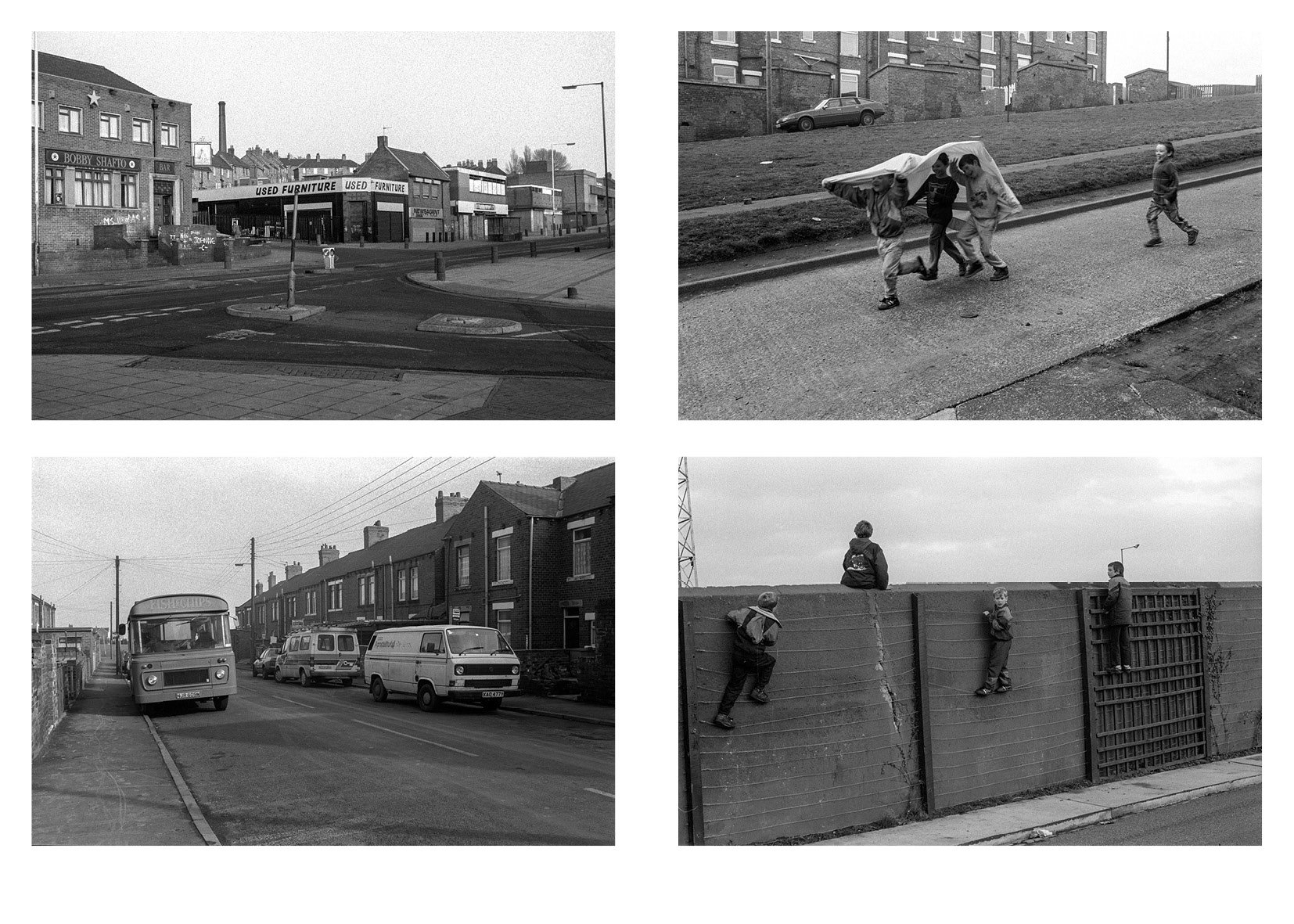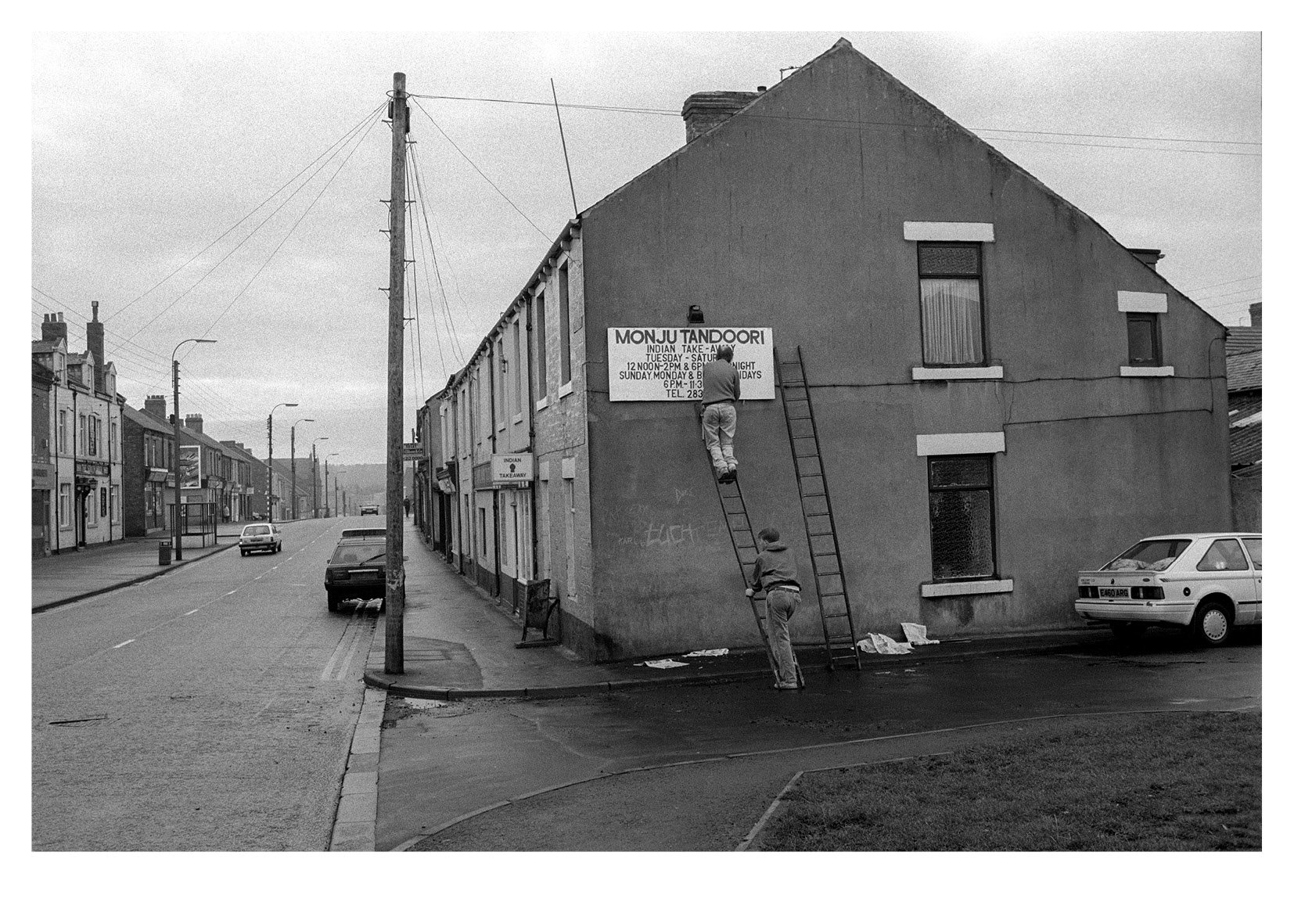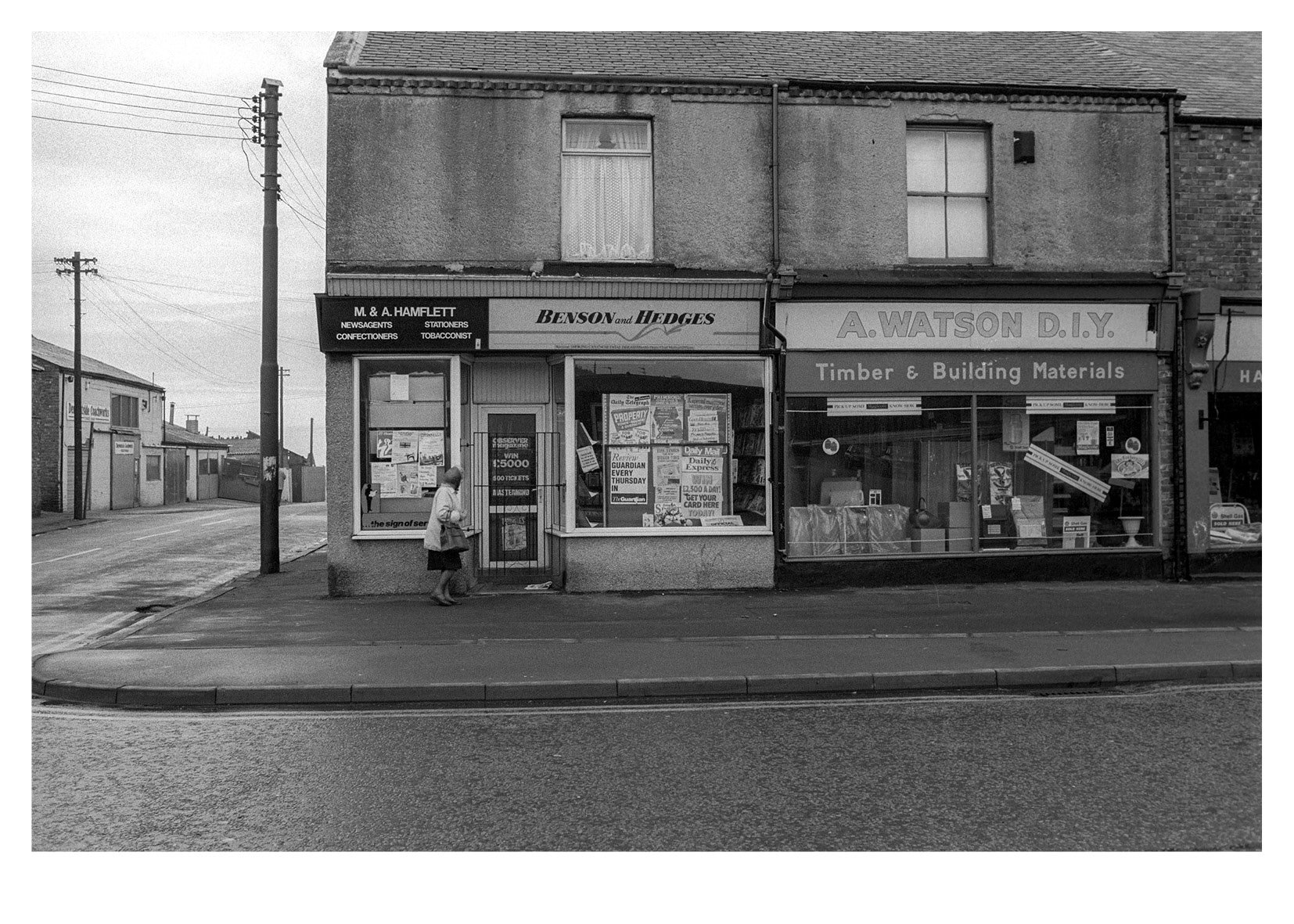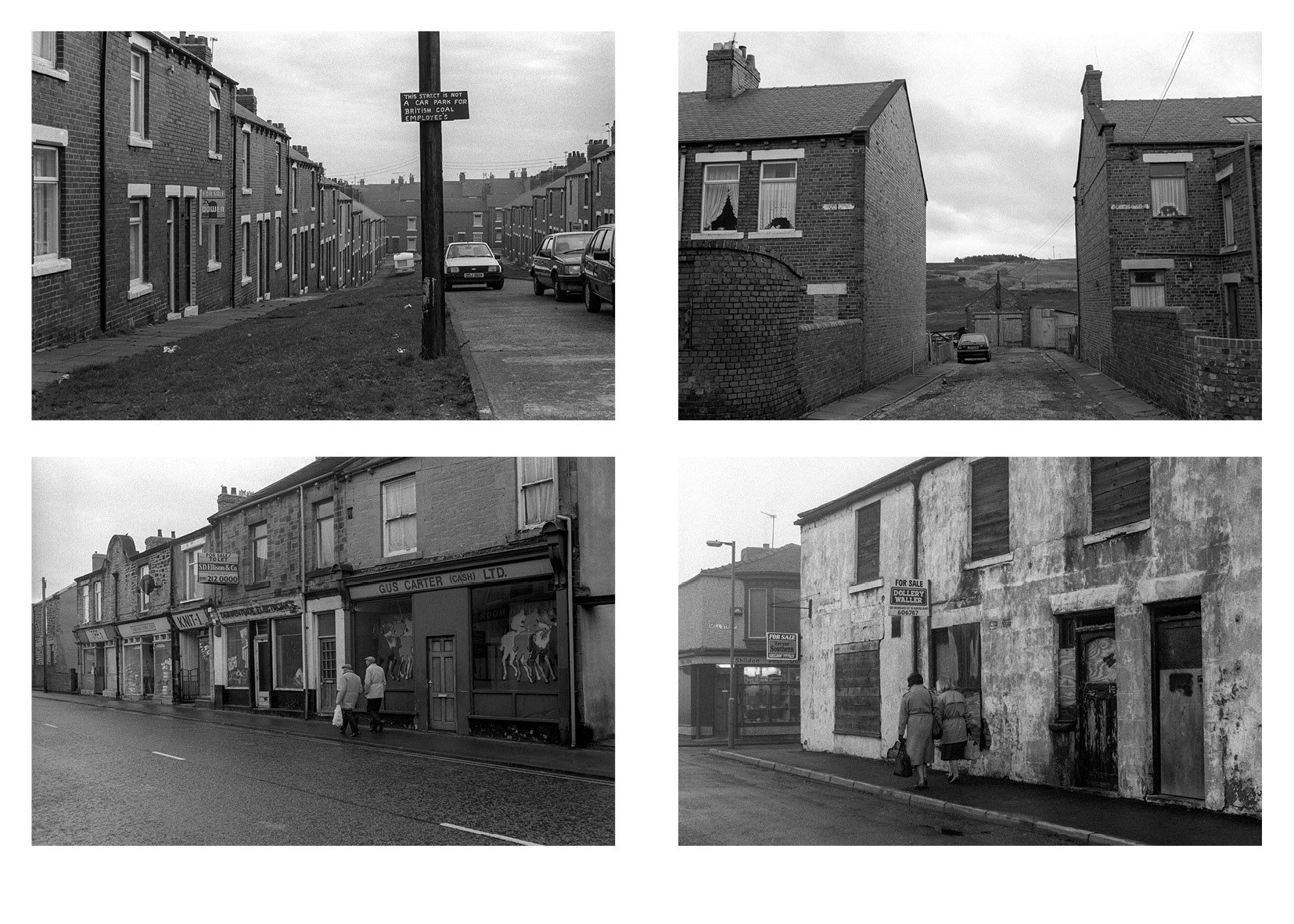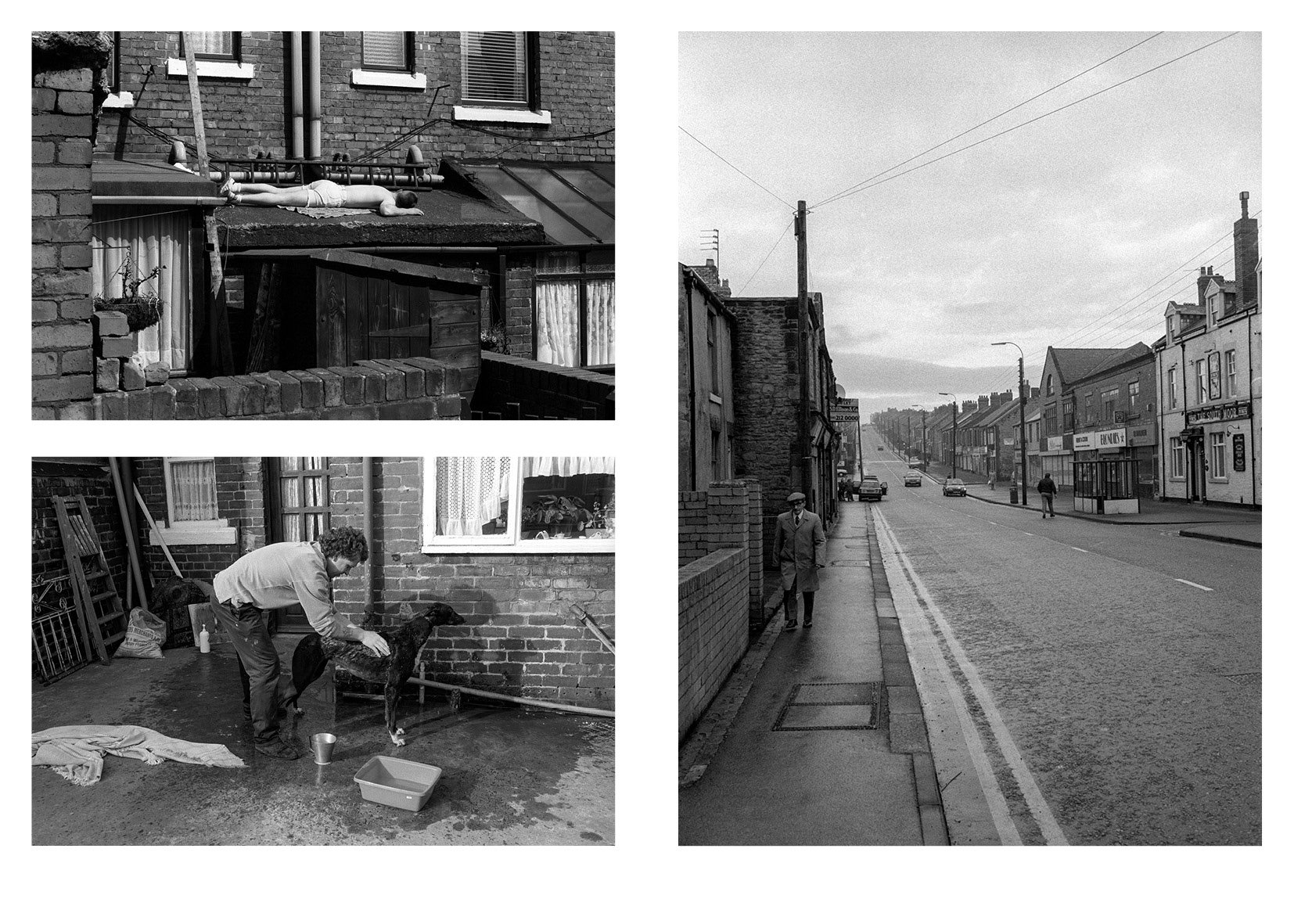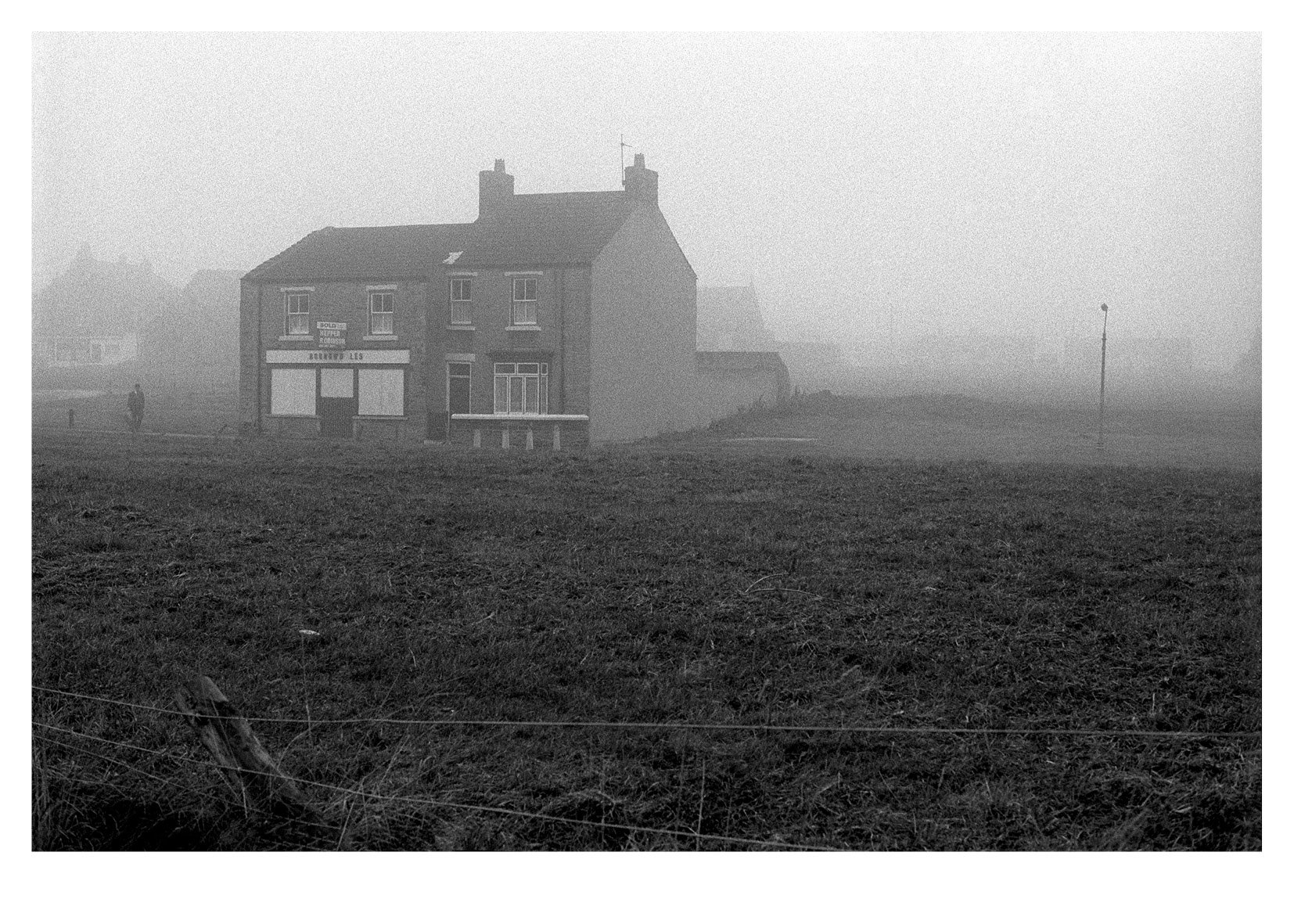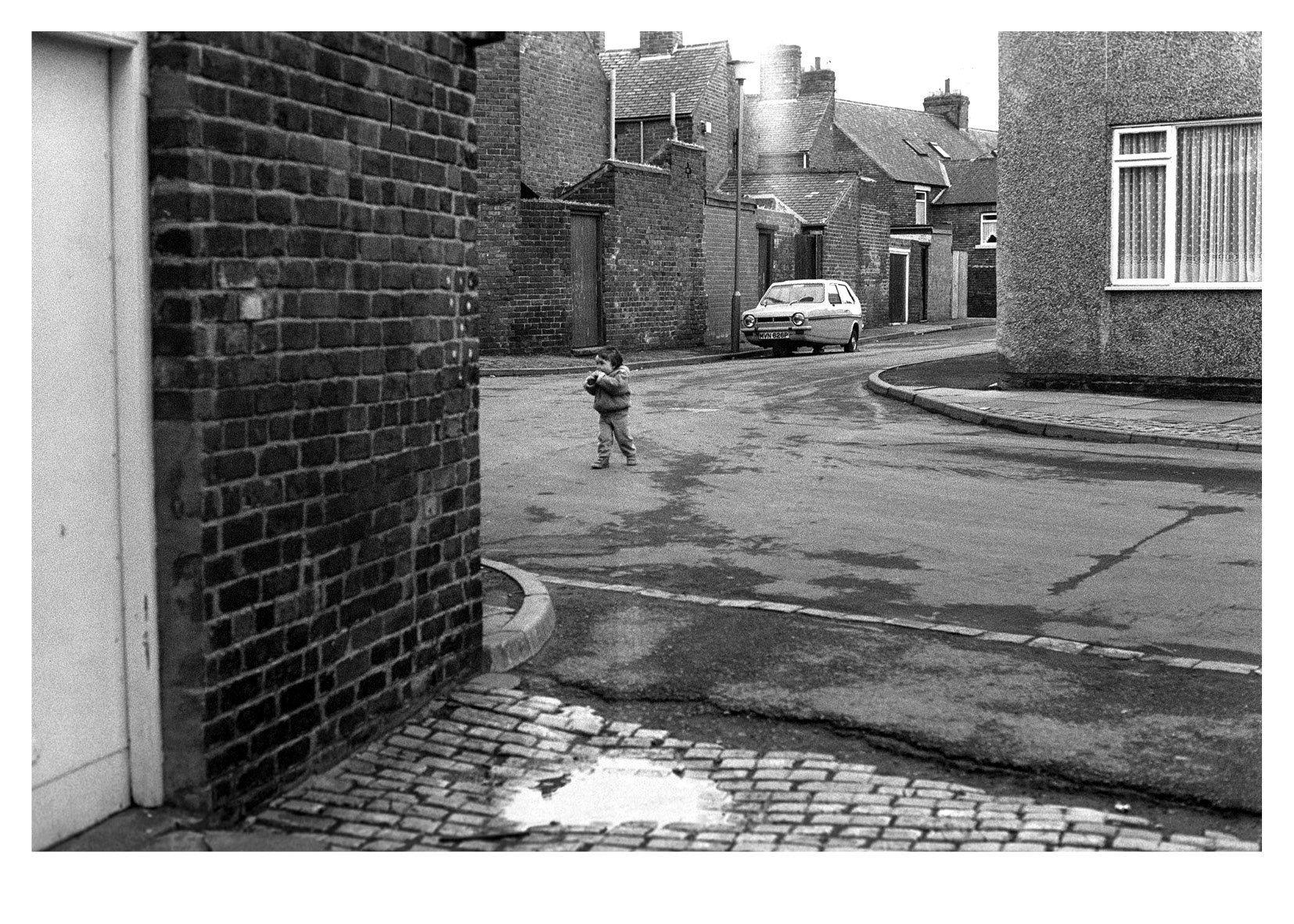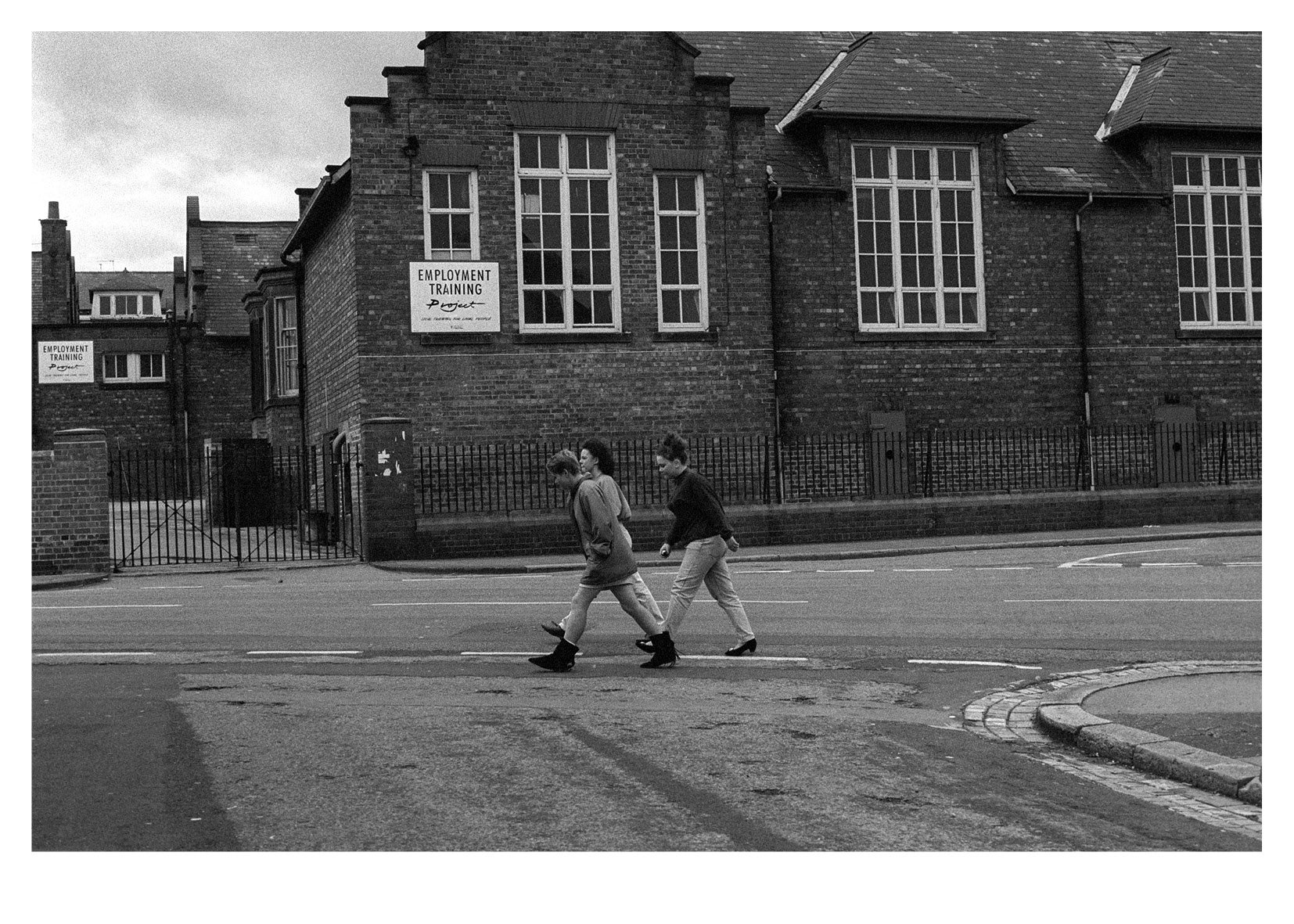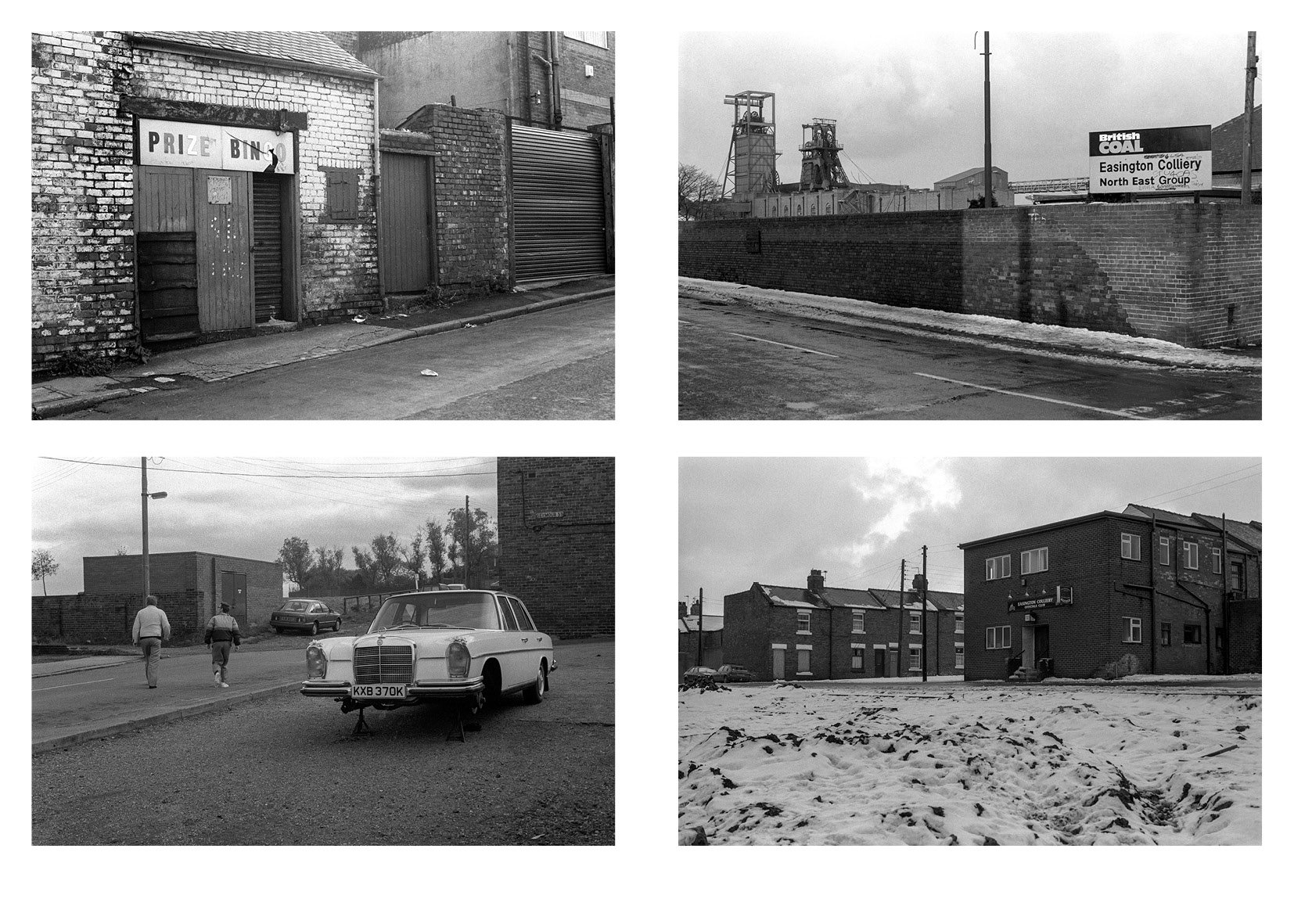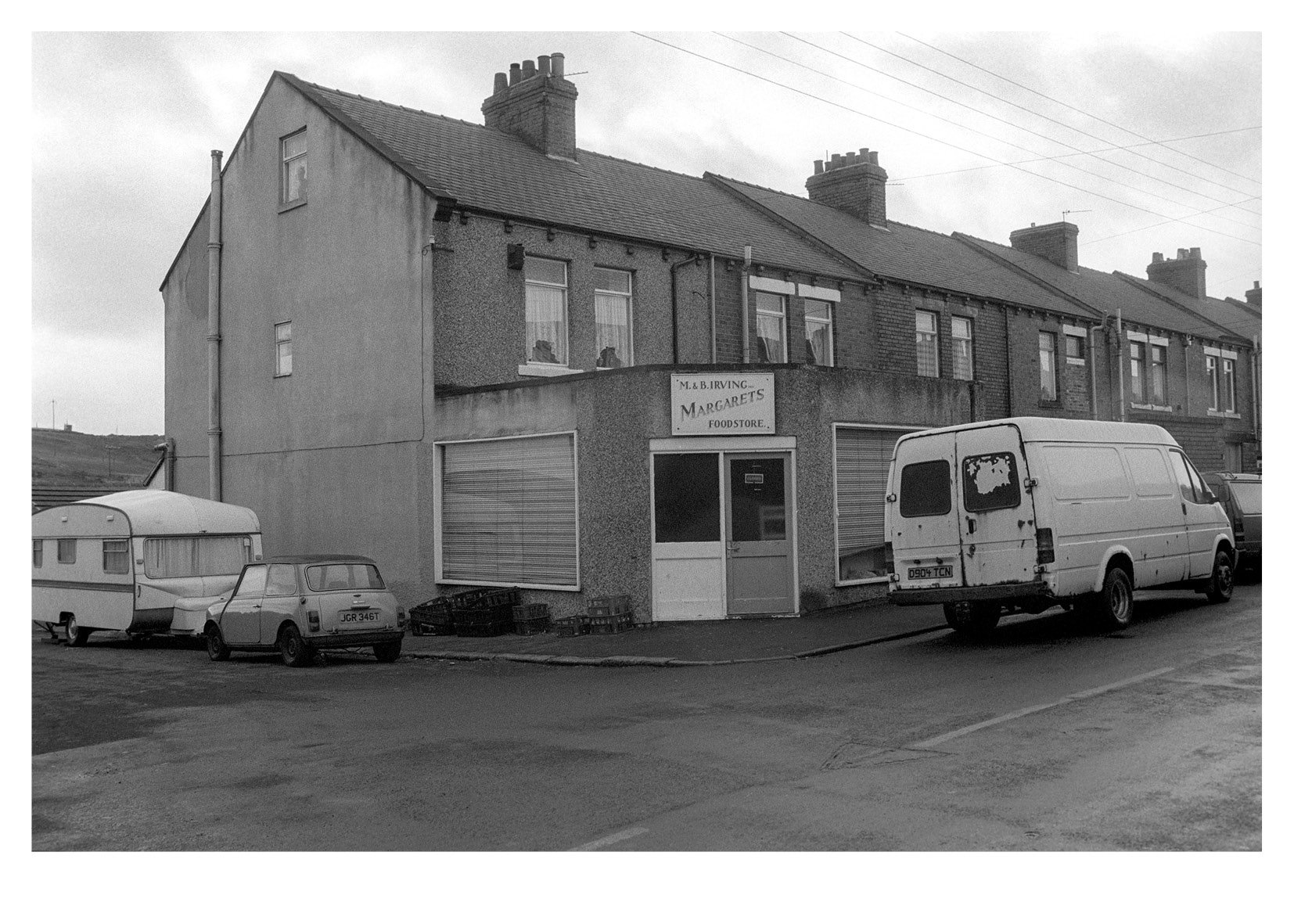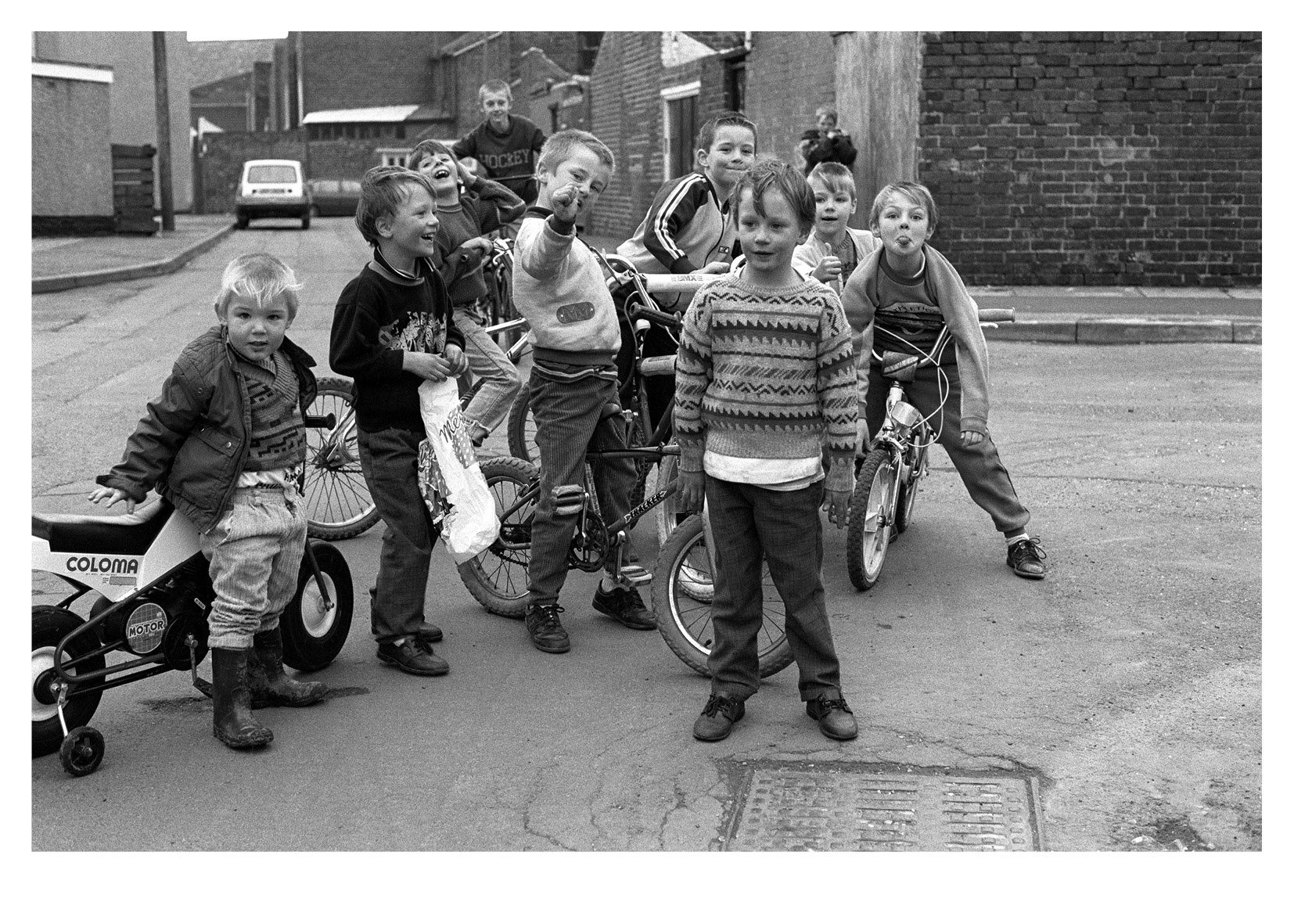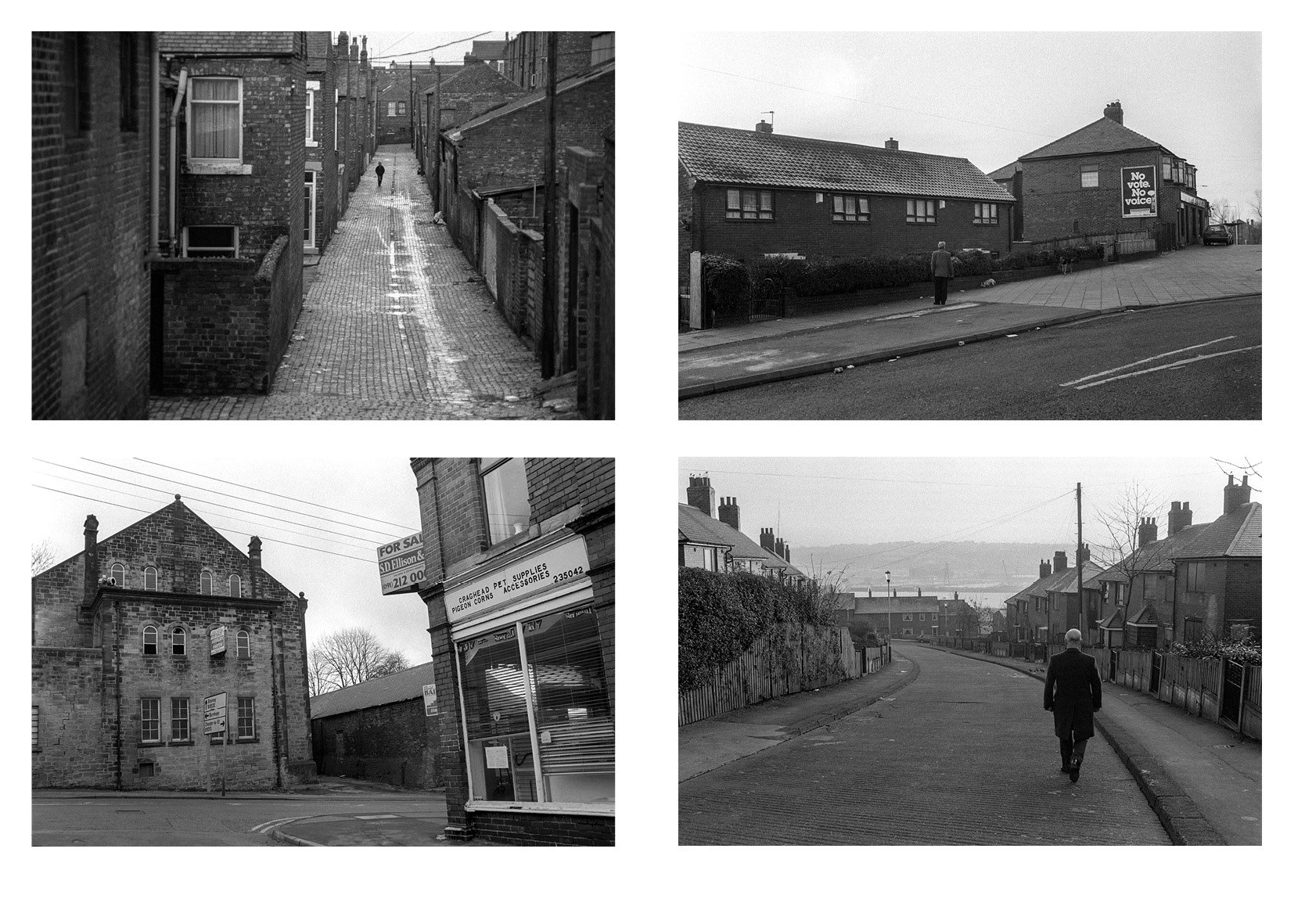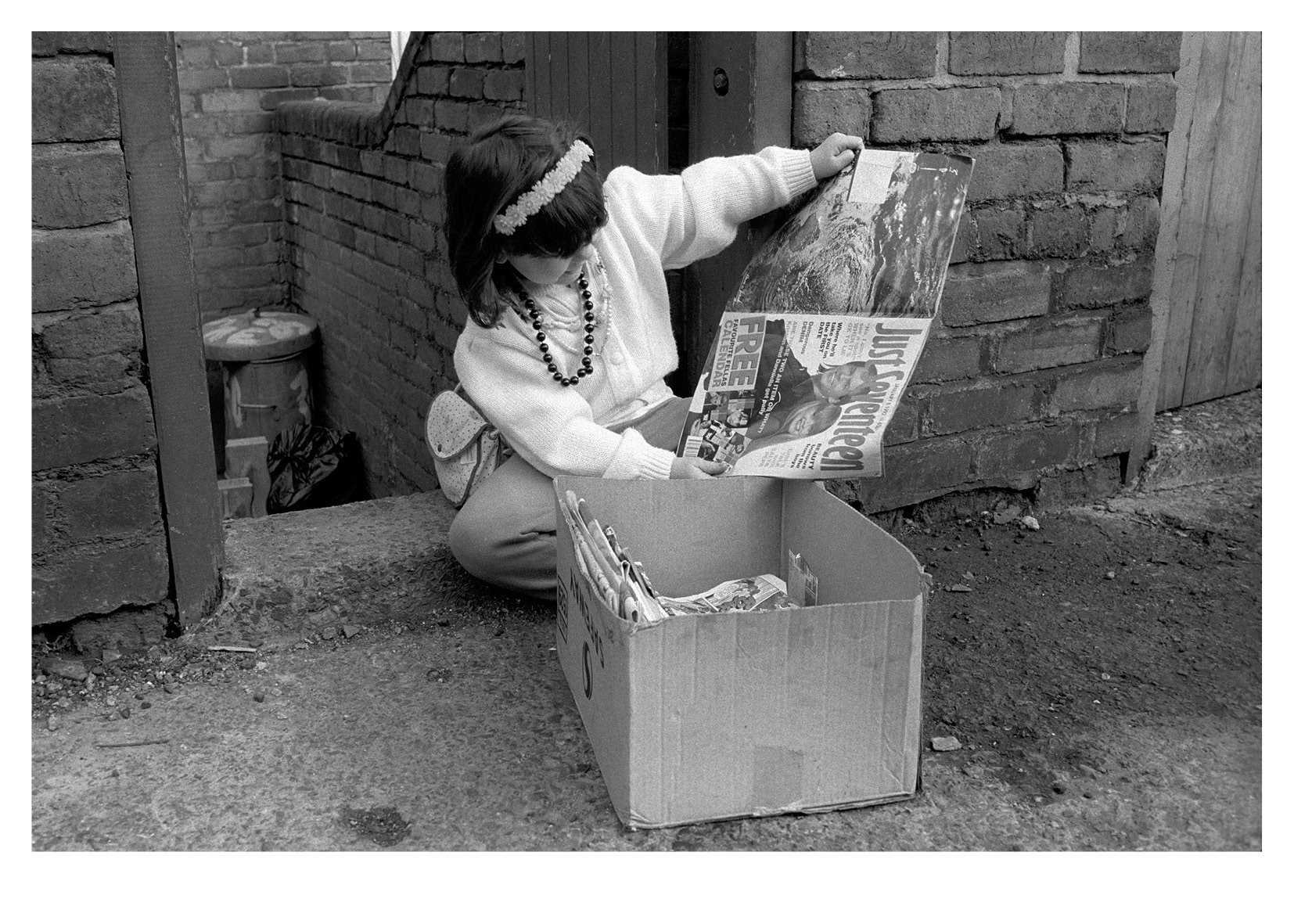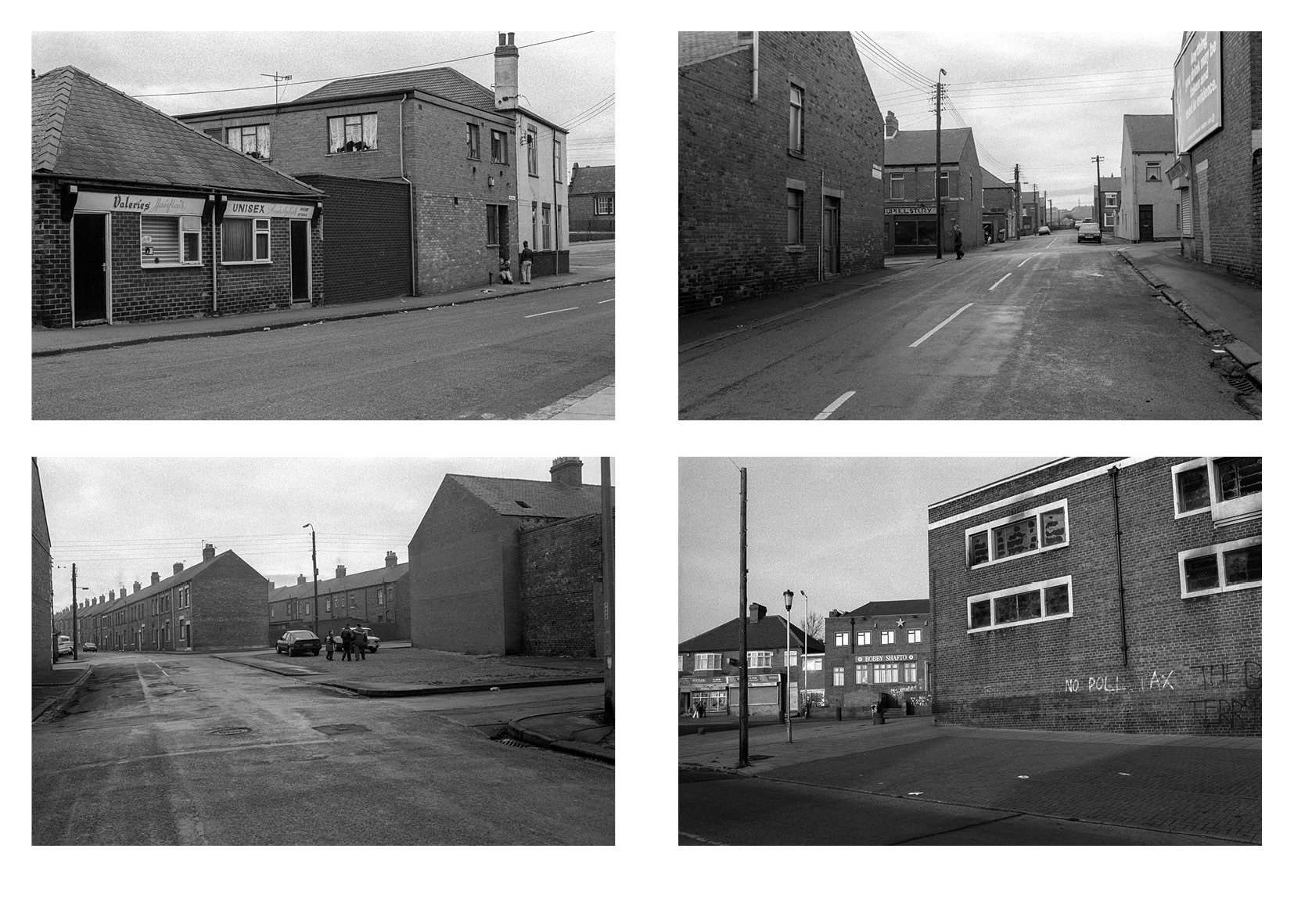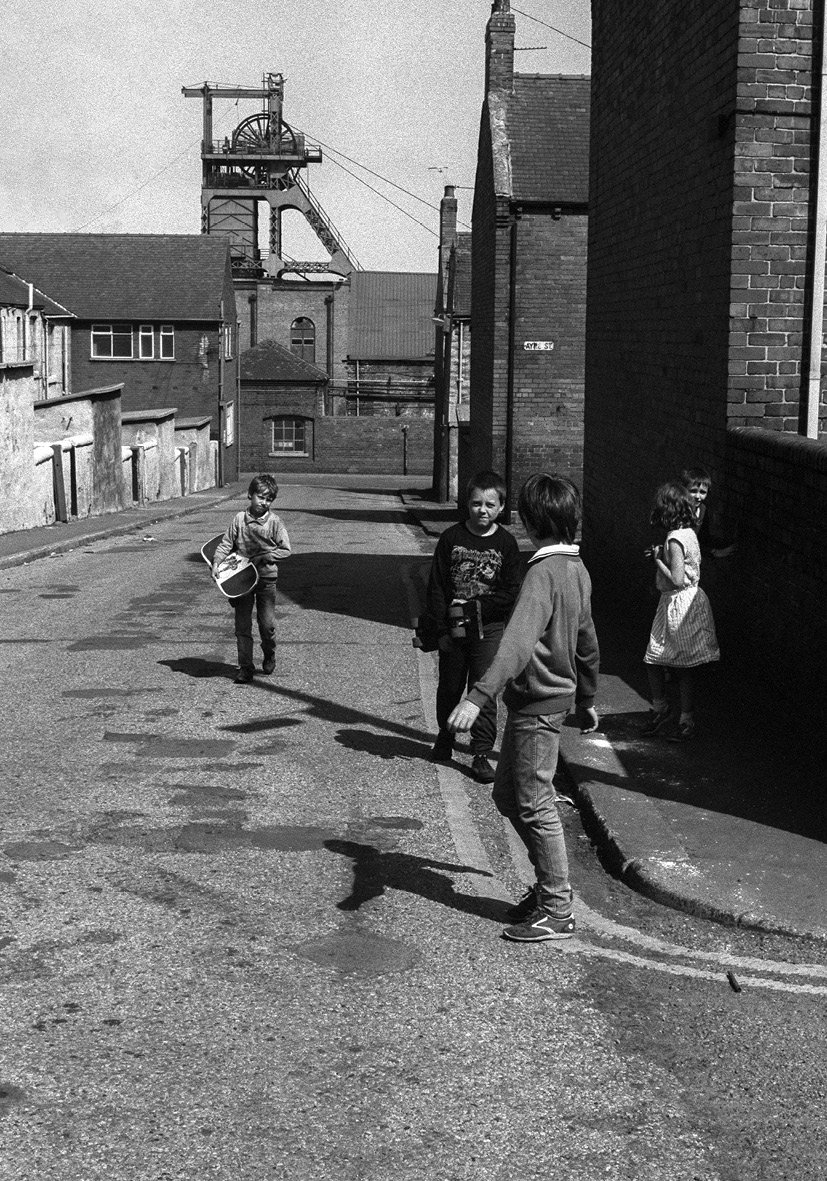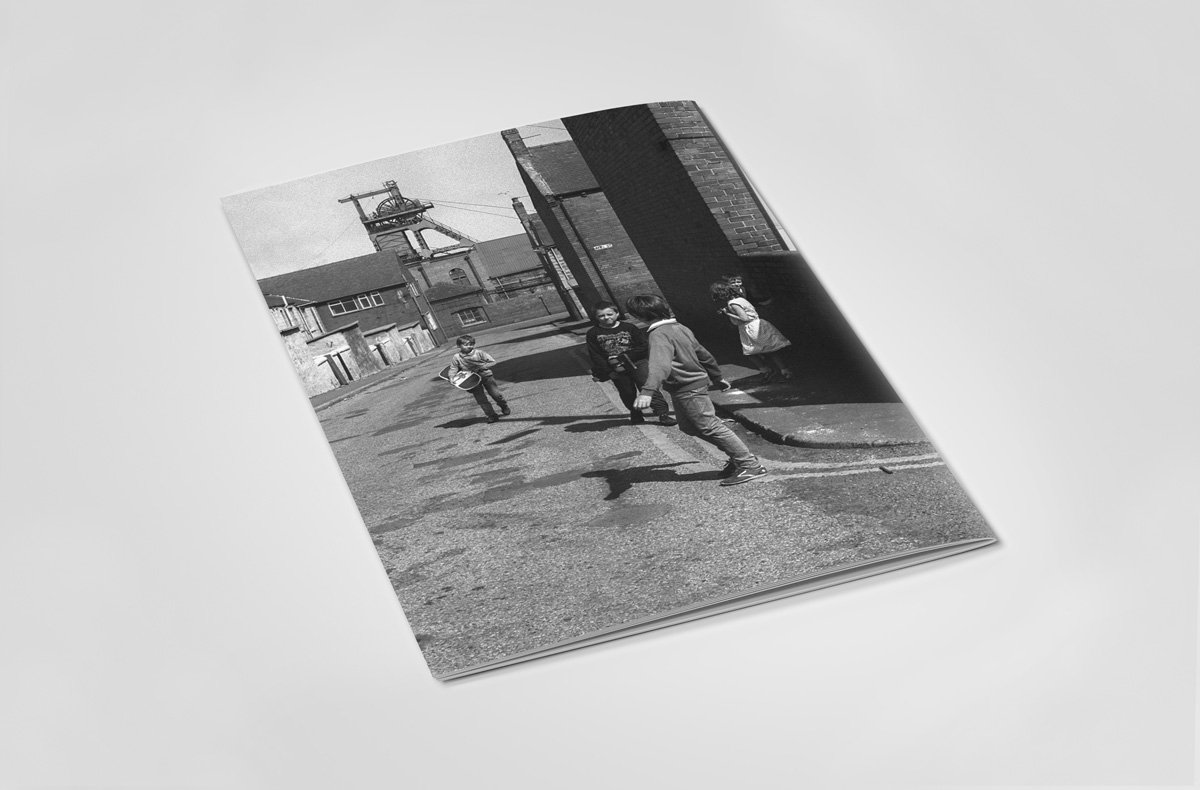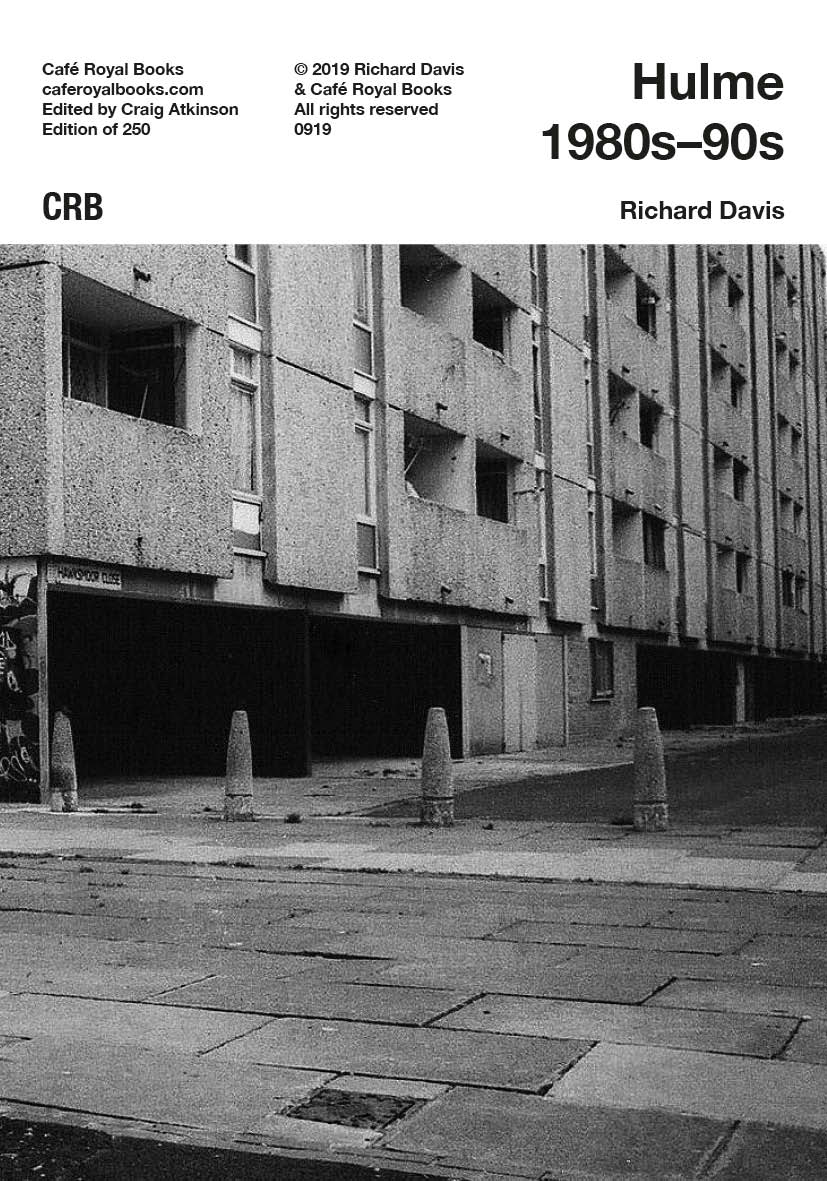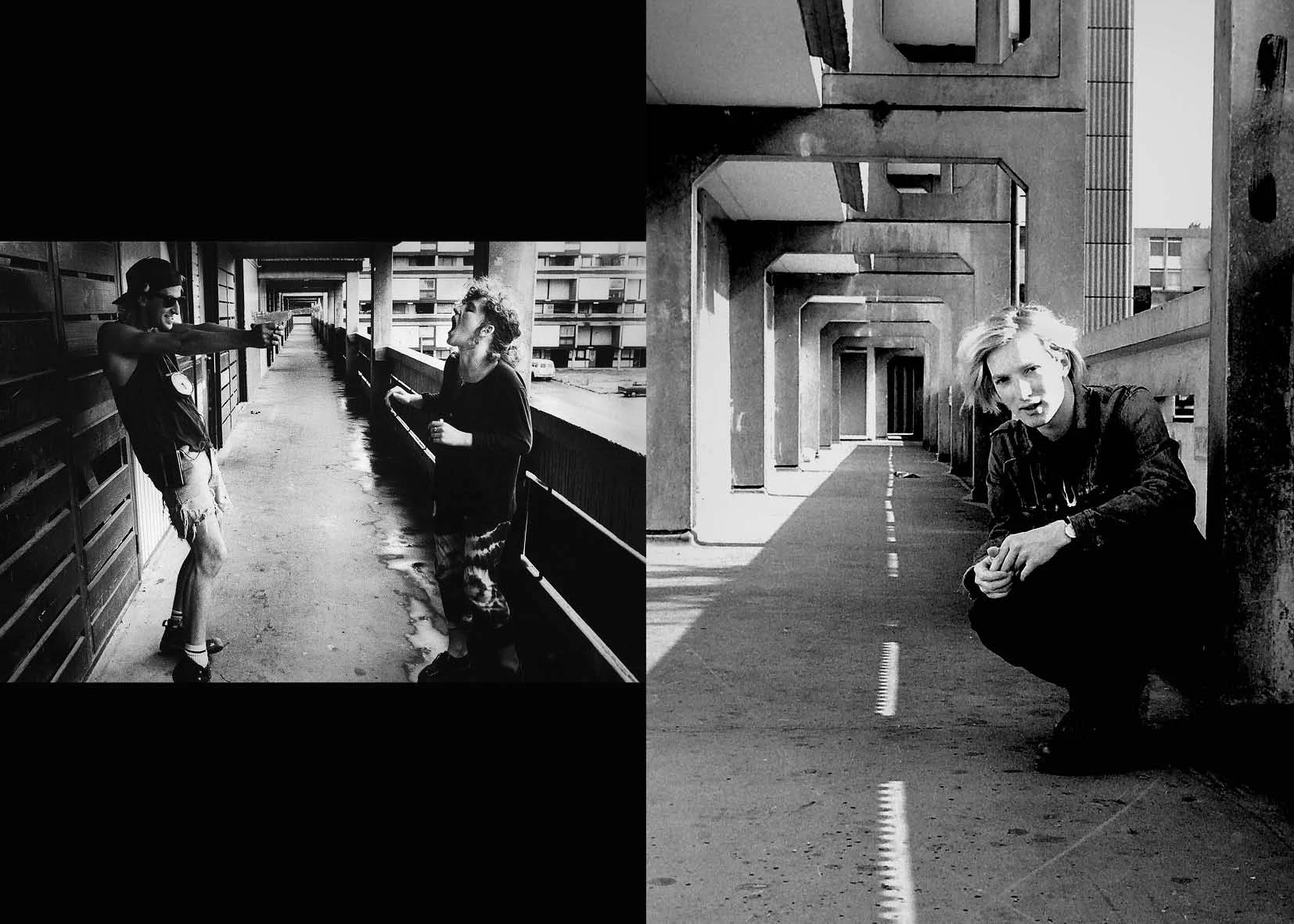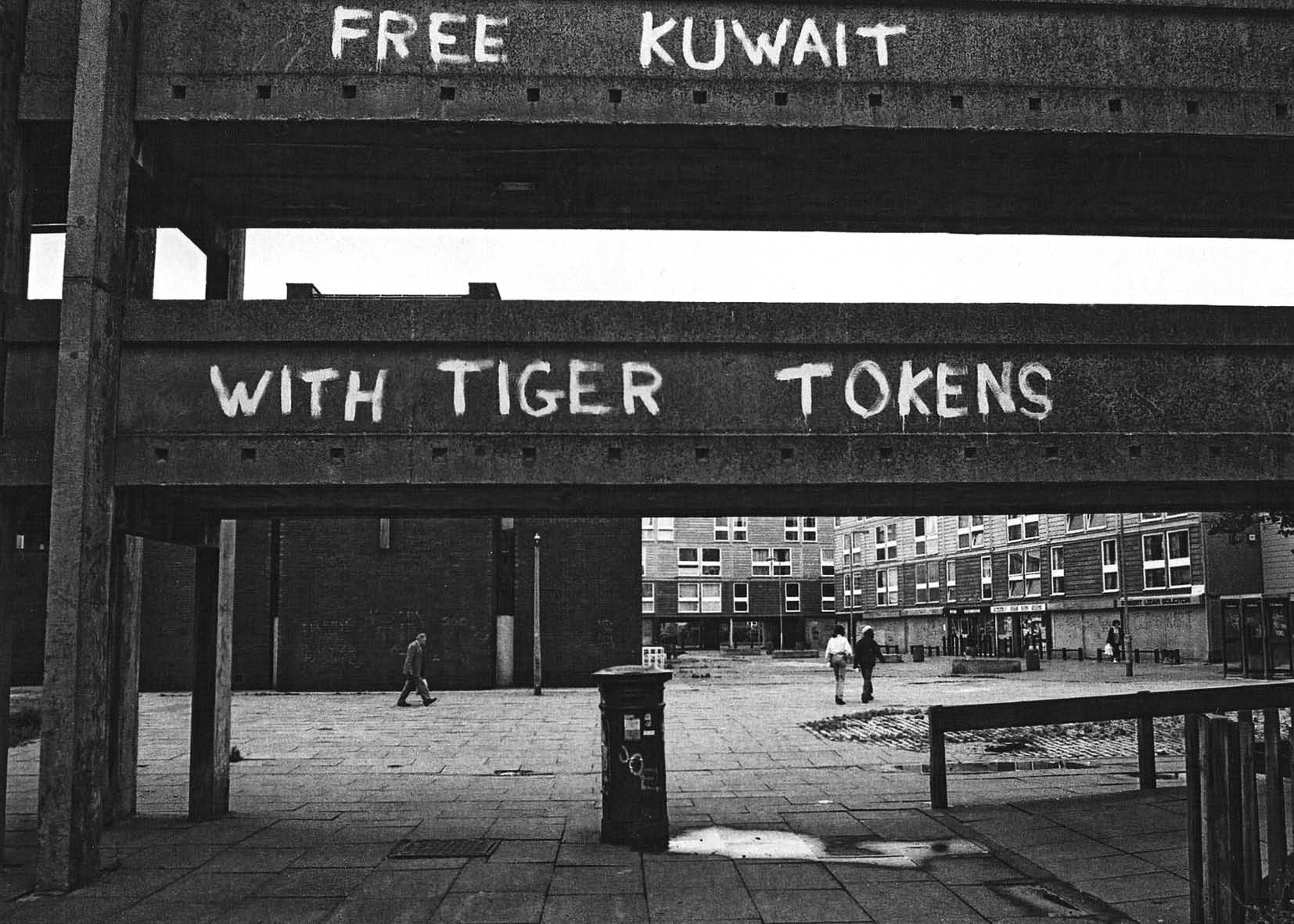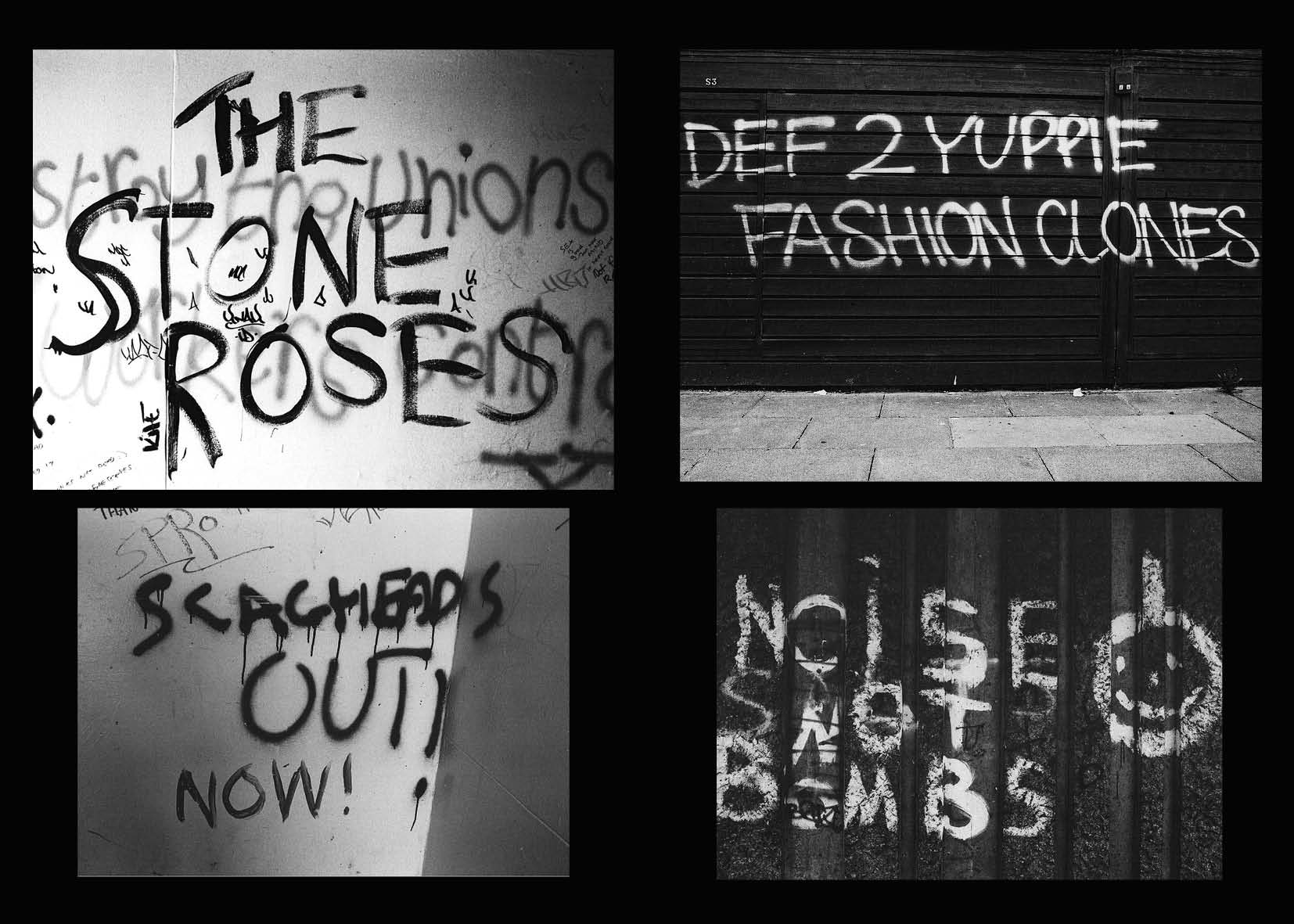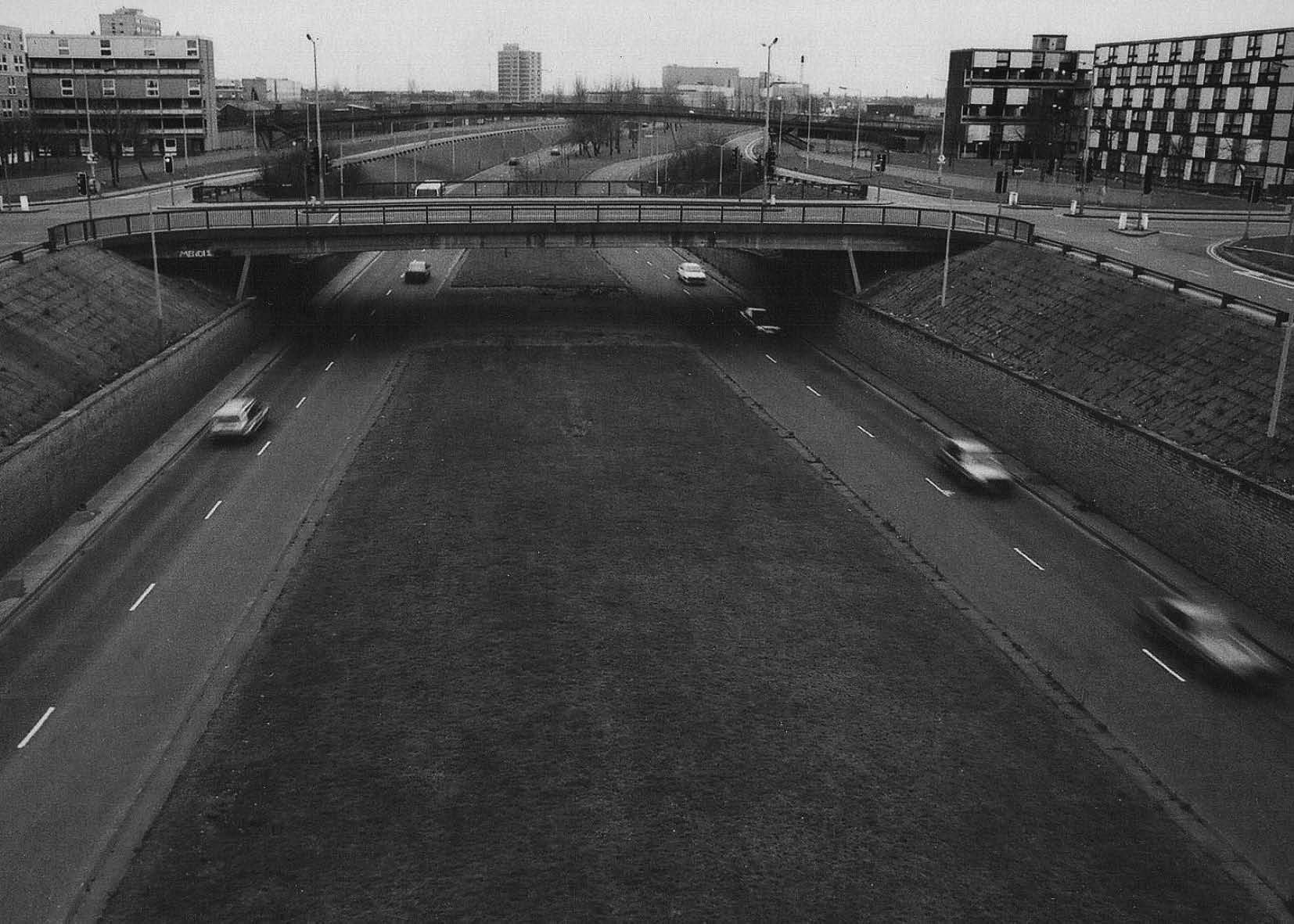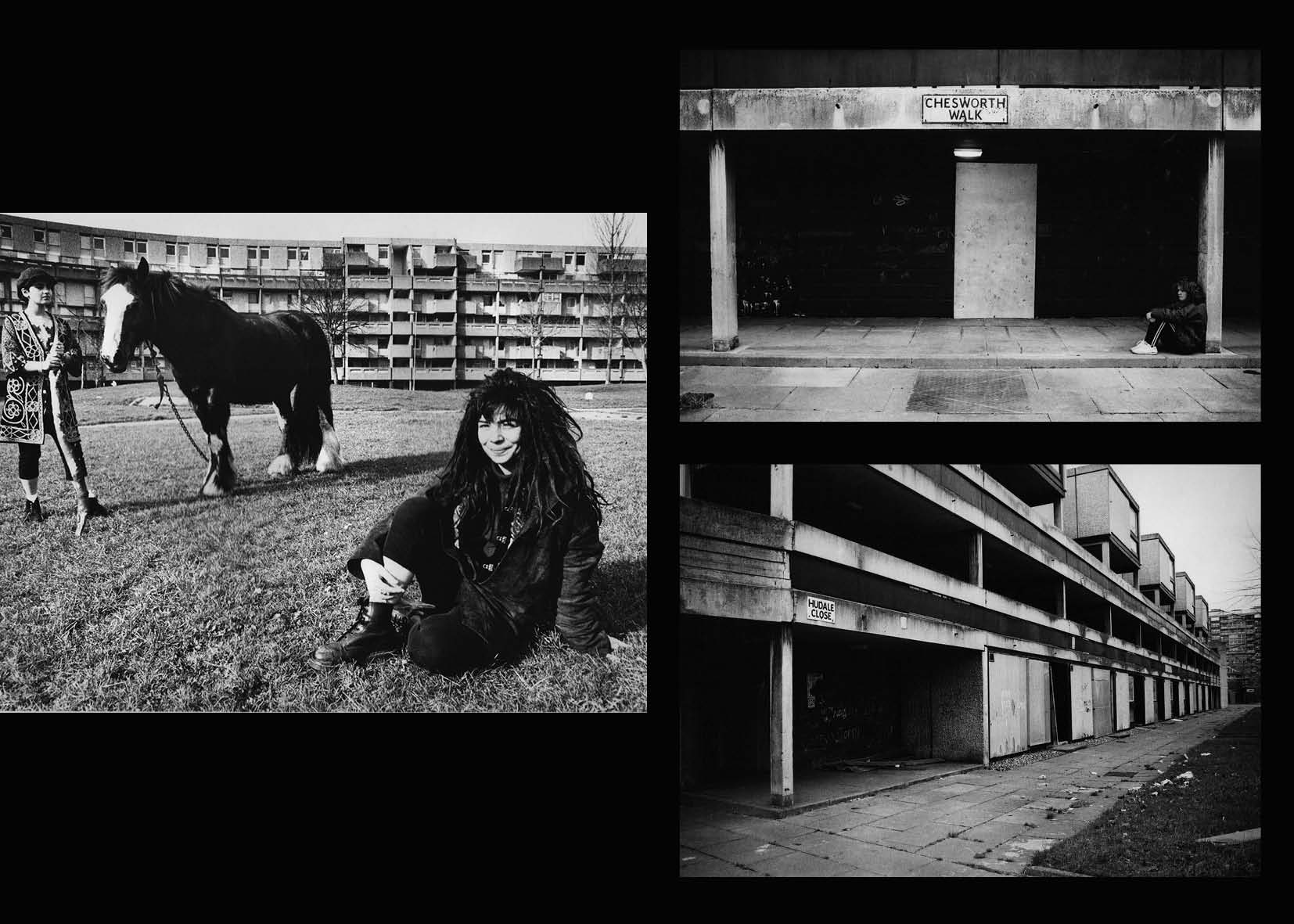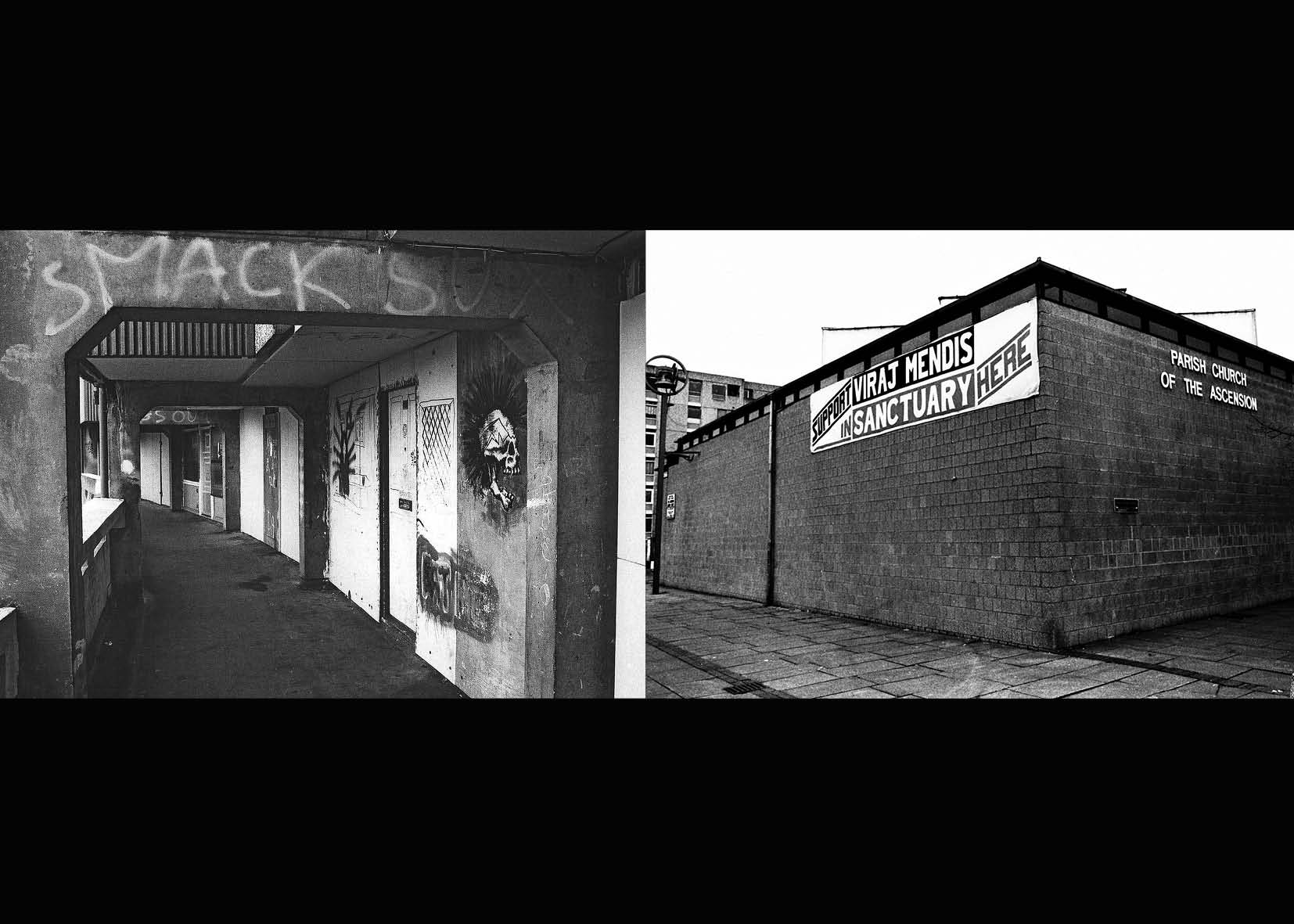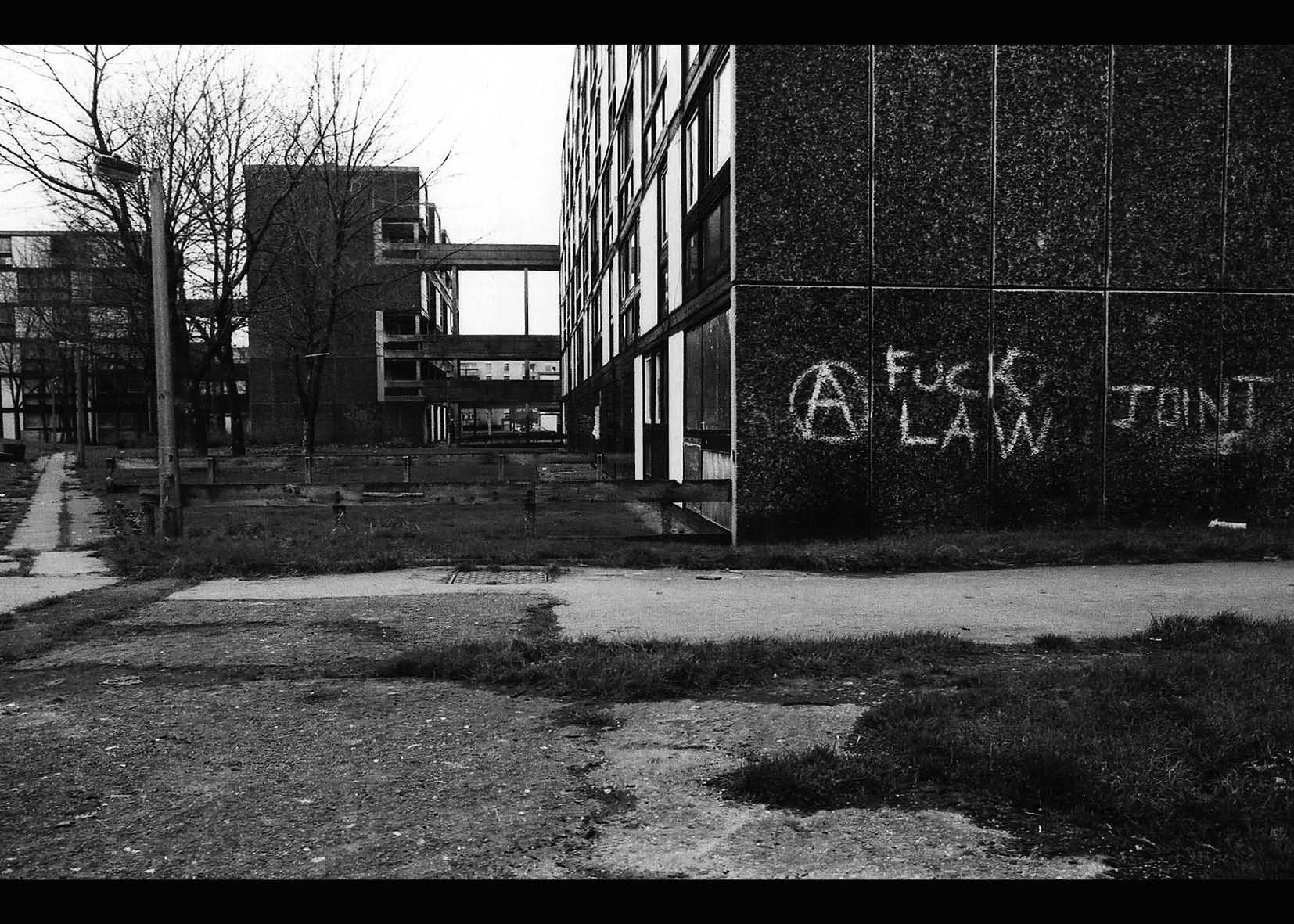 Image 1 of 19
Image 1 of 19

 Image 2 of 19
Image 2 of 19

 Image 3 of 19
Image 3 of 19

 Image 4 of 19
Image 4 of 19

 Image 5 of 19
Image 5 of 19

 Image 6 of 19
Image 6 of 19

 Image 7 of 19
Image 7 of 19

 Image 8 of 19
Image 8 of 19

 Image 9 of 19
Image 9 of 19

 Image 10 of 19
Image 10 of 19

 Image 11 of 19
Image 11 of 19

 Image 12 of 19
Image 12 of 19

 Image 13 of 19
Image 13 of 19

 Image 14 of 19
Image 14 of 19

 Image 15 of 19
Image 15 of 19

 Image 16 of 19
Image 16 of 19

 Image 17 of 19
Image 17 of 19

 Image 18 of 19
Image 18 of 19

 Image 19 of 19
Image 19 of 19




















Janine Wiedel — Shildon 1986
36 pages
printed in England
staple bound
14cm x 20cm
In 1986, I was commissioned by ITV television to document Shildon, a small town in County Durham once known as “the cradle of the railways”. My son was just one year old and still light enough to carry on my back. It was February and very cold. Two years before, the town’s lifeline had been cut off, by the ending of 150 years of continuous rail vehicle maintenance and construction.
Shildon was central to the story of Britain’s railways. It was here that the world’s first steam-powered public railway opened and where one of the first rail engines was built.
The town grew up alongside the development of the railway and was a major transport hub for coal mined in the nearby Durham collieries. The mining industry had been an important site of development in rail technology, and so it made sense that early railway locomotives were developed in and around the coalfields of the North of England.
Shildon’s commitment to rail was unparalleled, making it a single occupational community which stood apart from the surrounding towns. It was almost inevitable that any male born there would work in the Wagon Works, which would offer a job for life. However, in 1984 the Railway Works, once the biggest wagon works in the world, was closed with the loss of 2600 jobs or 85% of the male manufacturing jobs in the town. Unemployment in the town soon reached over 40%.
Shildon was not alone. In the 1980s under the Thatcher government many other communities, towns, cities, and regions experienced similar changes. Industries including steel, coal, docks and shipbuilding, all suffered massive, if not total, decline. Shildon’s problems were part of a much broader pattern.
By 1986 most of the rail lines linking Shildon to the network had already been ripped up.
However, a few remained as a daily reminder of the past. The local community would speak with a mixture of sadness and bitterness of their hard-fought battle to save their jobs.
36 pages
printed in England
staple bound
14cm x 20cm
In 1986, I was commissioned by ITV television to document Shildon, a small town in County Durham once known as “the cradle of the railways”. My son was just one year old and still light enough to carry on my back. It was February and very cold. Two years before, the town’s lifeline had been cut off, by the ending of 150 years of continuous rail vehicle maintenance and construction.
Shildon was central to the story of Britain’s railways. It was here that the world’s first steam-powered public railway opened and where one of the first rail engines was built.
The town grew up alongside the development of the railway and was a major transport hub for coal mined in the nearby Durham collieries. The mining industry had been an important site of development in rail technology, and so it made sense that early railway locomotives were developed in and around the coalfields of the North of England.
Shildon’s commitment to rail was unparalleled, making it a single occupational community which stood apart from the surrounding towns. It was almost inevitable that any male born there would work in the Wagon Works, which would offer a job for life. However, in 1984 the Railway Works, once the biggest wagon works in the world, was closed with the loss of 2600 jobs or 85% of the male manufacturing jobs in the town. Unemployment in the town soon reached over 40%.
Shildon was not alone. In the 1980s under the Thatcher government many other communities, towns, cities, and regions experienced similar changes. Industries including steel, coal, docks and shipbuilding, all suffered massive, if not total, decline. Shildon’s problems were part of a much broader pattern.
By 1986 most of the rail lines linking Shildon to the network had already been ripped up.
However, a few remained as a daily reminder of the past. The local community would speak with a mixture of sadness and bitterness of their hard-fought battle to save their jobs.



